Voice search is HUGE right now.
And it’s only getting bigger.
The question is:
How do you optimize your site for voice search?
Well, that’s exactly what you’re going to learn in this guide.

Voice search is HUGE right now.
And it’s only getting bigger.
The question is:
How do you optimize your site for voice search?
Well, that’s exactly what you’re going to learn in this guide.


Some people say that we’re in the middle of a “Voice Search Revolution”.
Is that true… or an exaggeration?
Let’s look at some recent stats…
41% of adults (and 55% of teens) use voice search daily (Google).
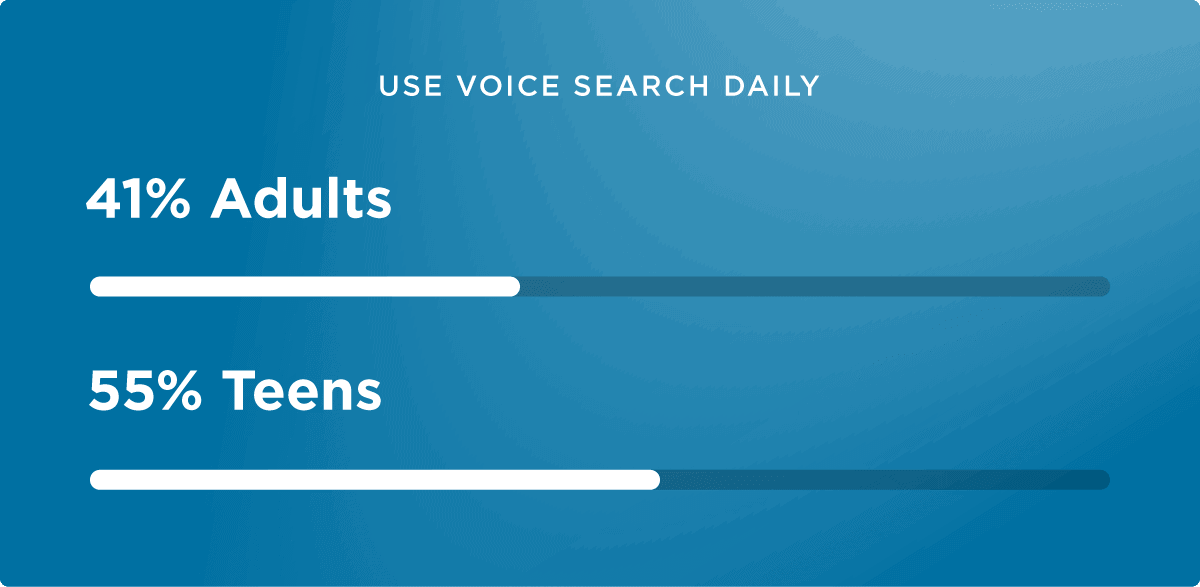
20% of all Google mobile queries are voice searches (Google).

Voice search has grown 35x since 2008 (KPCB).
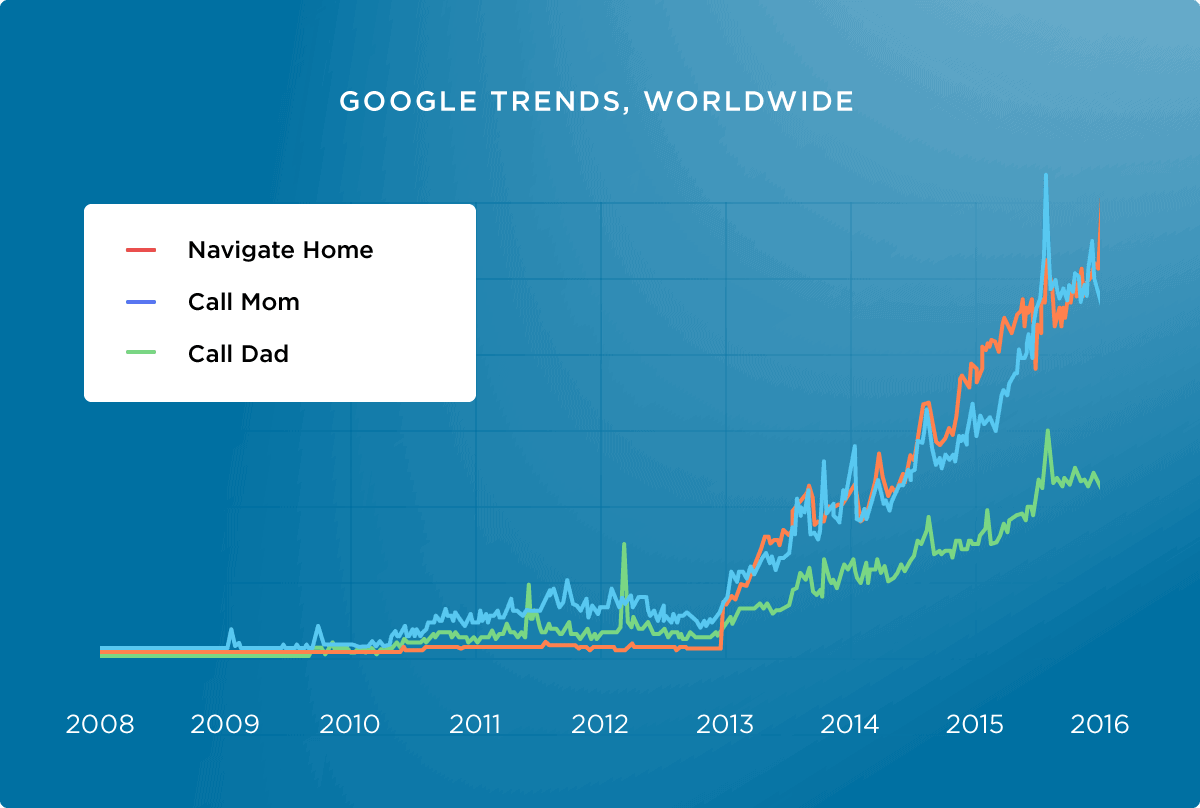
The stats paint a clear picture:
Voice search isn’t “the next big thing”. It’s already here.
And when you dig deeper, things get even more interesting…
25% of all Windows 10 desktop searches are done via voice (Branded3).

This stat surprised me.
Contrary to popular belief, voice search isn’t just for mobile devices.
More people are talking to their desktop computers and smart speakers. Speaking of…
65% of Google Home or Amazon echo owners “can’t imagine going back” (Geomarketing).
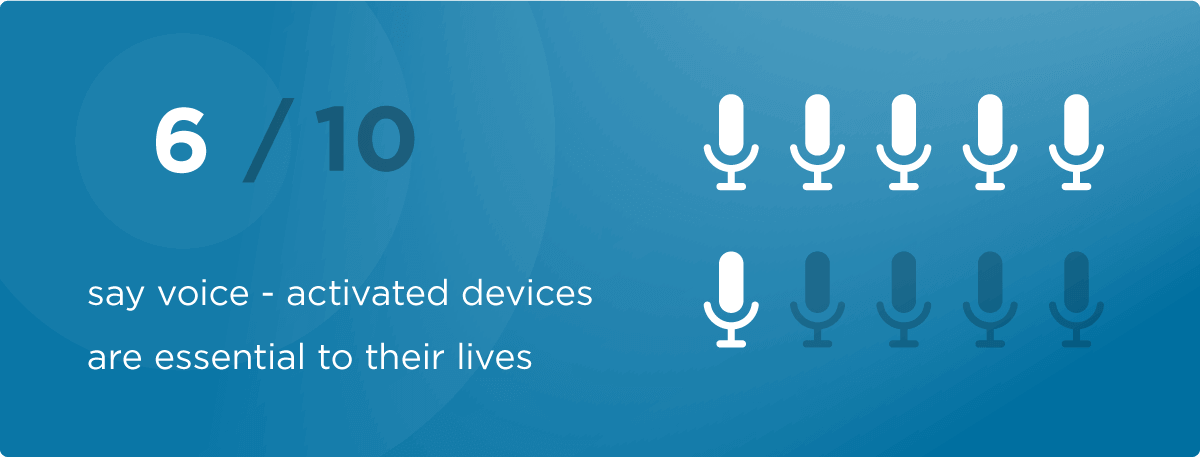
Smart speakers are the next refrigerator – every home will have one. And as more people search with smart speakers, SEOs will need to adapt (more on that in Chapter 3).
ComScore predicted that by 2020 50% of all searches will be voice searches. No up-to-date numbers have been published, but one study puts smart speaker ownership in the US at close to 90 million. (Voicebot).
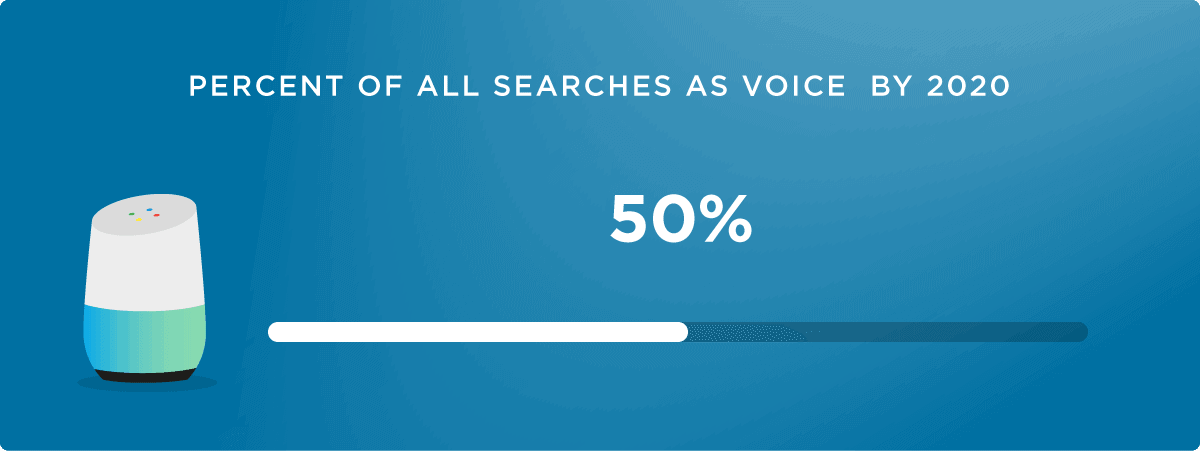
Who knows if this prediction will turn out to be true. Either way, it’s clear that voice searches are eating into keyboard-based searches.
And as you’ll soon see, this trend impacts how we optimize content for SEO.
Now, you might be wondering:
There are 3 main drivers behind this trend…
First, searching with your voice is 3.7x faster than typing (Bing).
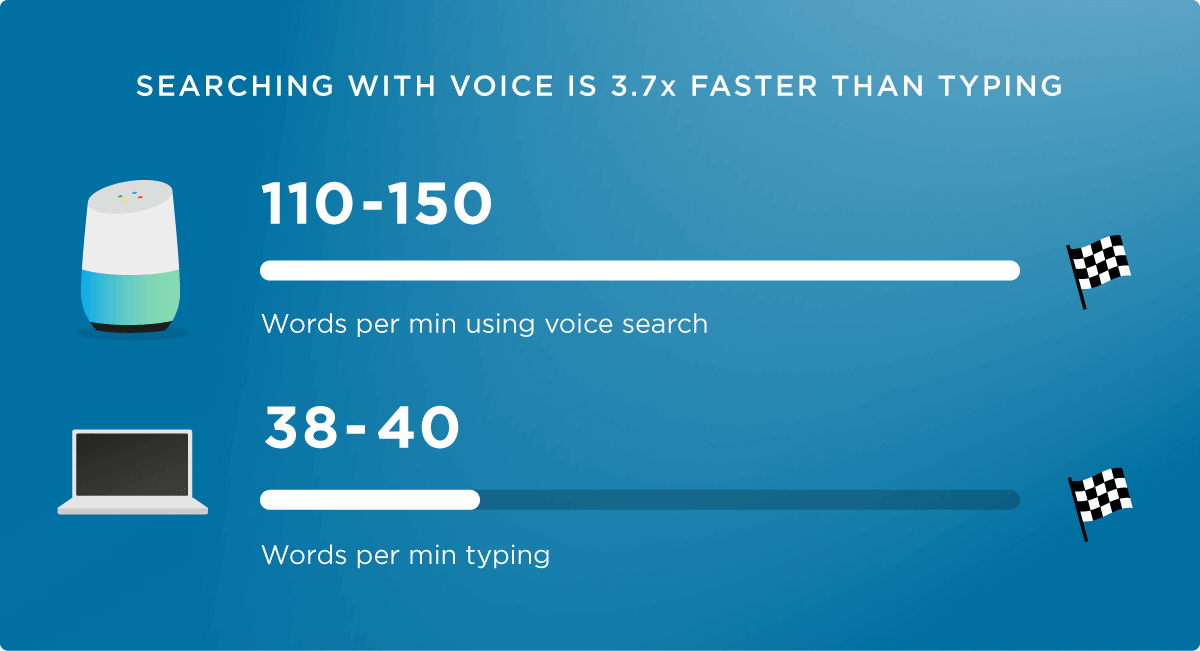
Faster searches=faster answers.
So it’s no surprise that more people are using their voice instead of a keyboard.
Second, voice is perfect for mobile searches. In fact, nearly 60% of mobile searchers use voice search at least “some of the time” (Stone Temple).
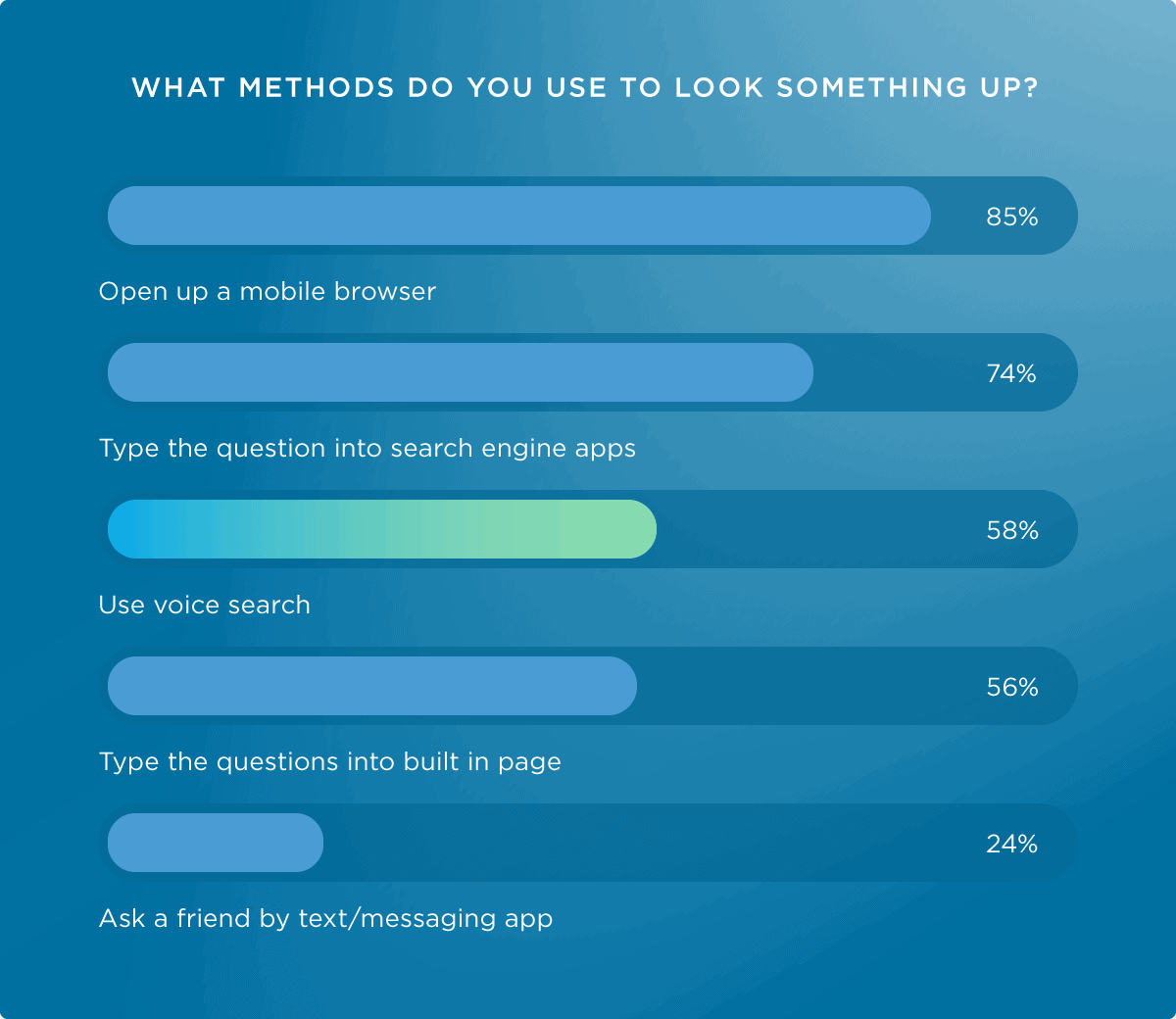
Finally, voice search is more convenient. That’s probably why more than half of respondents in one survey stated they use voice search so they “don’t have to type” (Stone Temple).
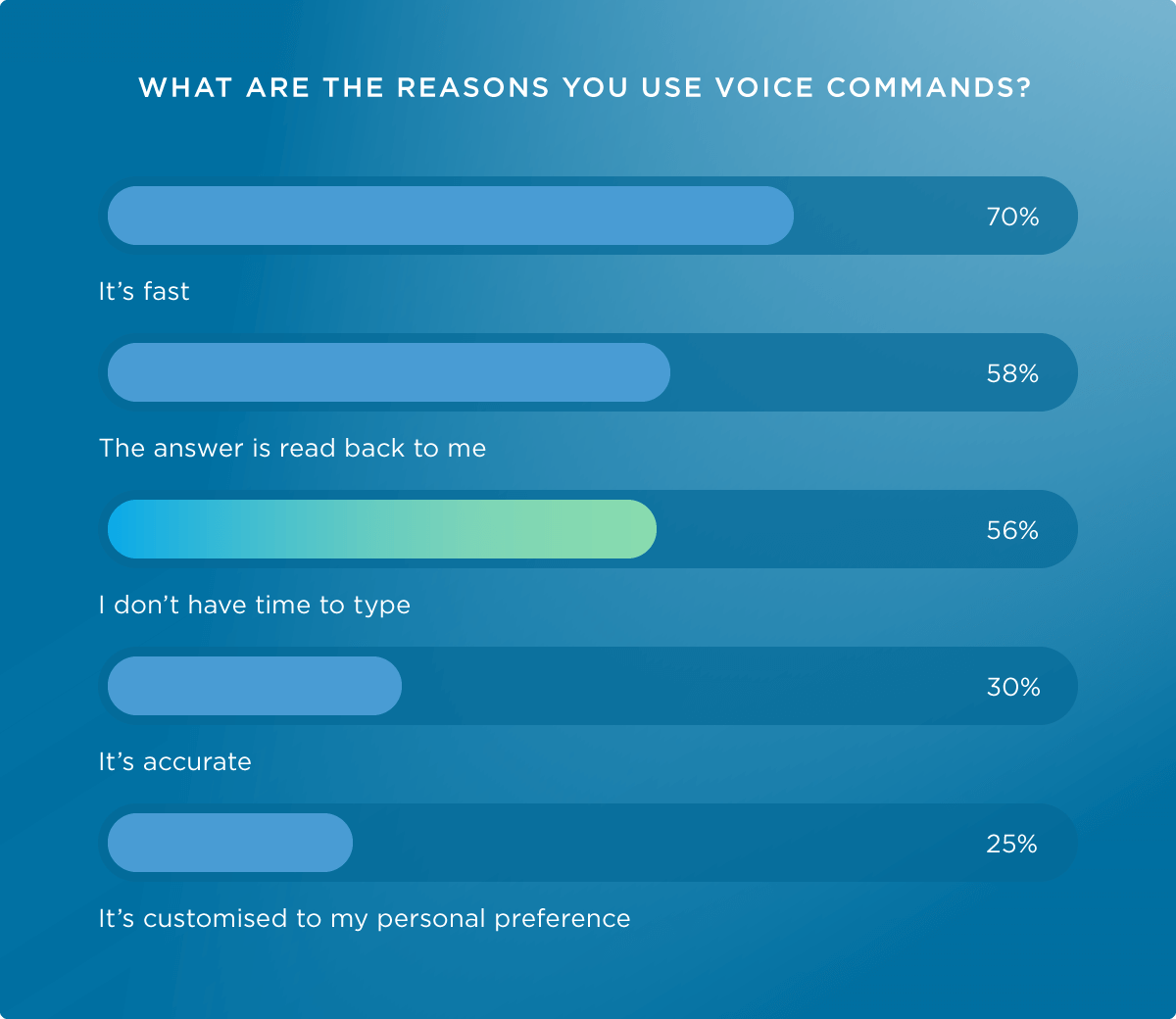
Typing “how tall is the tallest building in the world” on an iPhone is a huge pain. But saying the same phrase out loud is an absolute breeze.
To summarize:
It’s clear that voice search isn’t just hype. It’s a legit trend.
And it’s a trend that’s already affecting SEO.

As it turns out, searching with your voice is very different than typing.
Specifically, voice search changes:
How people search.
When people search.
And what they search for.
In this chapter, I’ll break down these changes… and how they impact SEO.
Voice search changes how people search in two important ways:
I’ll explain…
Bing engineers noticed that voice search keywords are significantly longer than text-based searches.
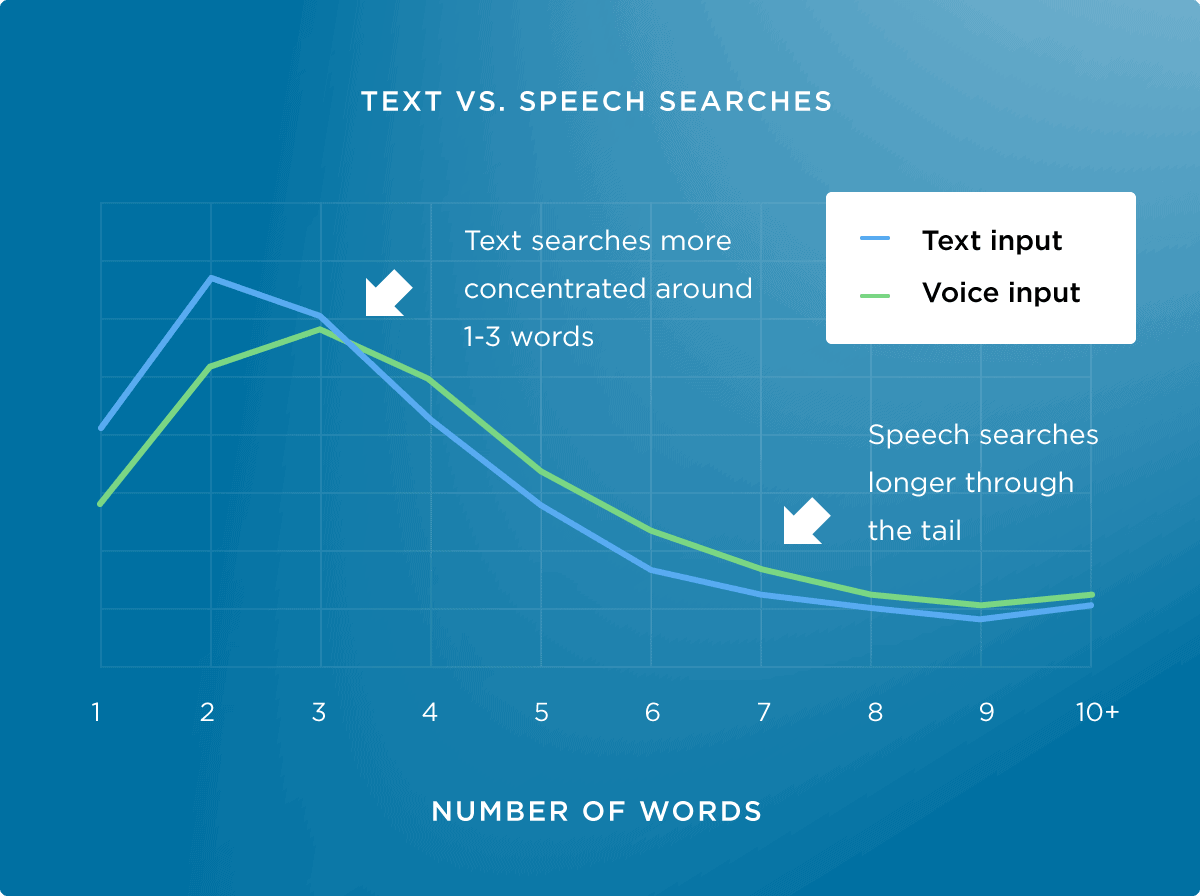
And voice searches aren’t just longer… they’re less like “computer language”.
In other words: they’re more conversational.
(In fact, Google states that 70% of searches on Google Assistant use “natural language”.)
For example, let’s say you want to start making cold brew coffee at home.
A few years back, you’d probably type a short keyword like “make cold brew” into Google.

But when you search for the same thing with your voice, your query will be totally different.
Specifically, your search term will be longer. You’ll also use natural, human language.

Needless to say, this has a big impact on how we do keyword research and on-page SEO.
I’ll show you how to adapt to this change in Chapters 3 and 4.
But for now, let’s look at the second way voice search is changing SEO…
Because voice search is so convenient, it’s being used more often and in more places than ever before.
In fact, Google reports that “____ near me now” searches have grown by 150% over the last two years.

And these searches are happening in places that you might not expect…
One survey found that people are significantly more likely to use voice search in public places (like a restaurant, at the gym…and even in a public bathroom) compared to last year.
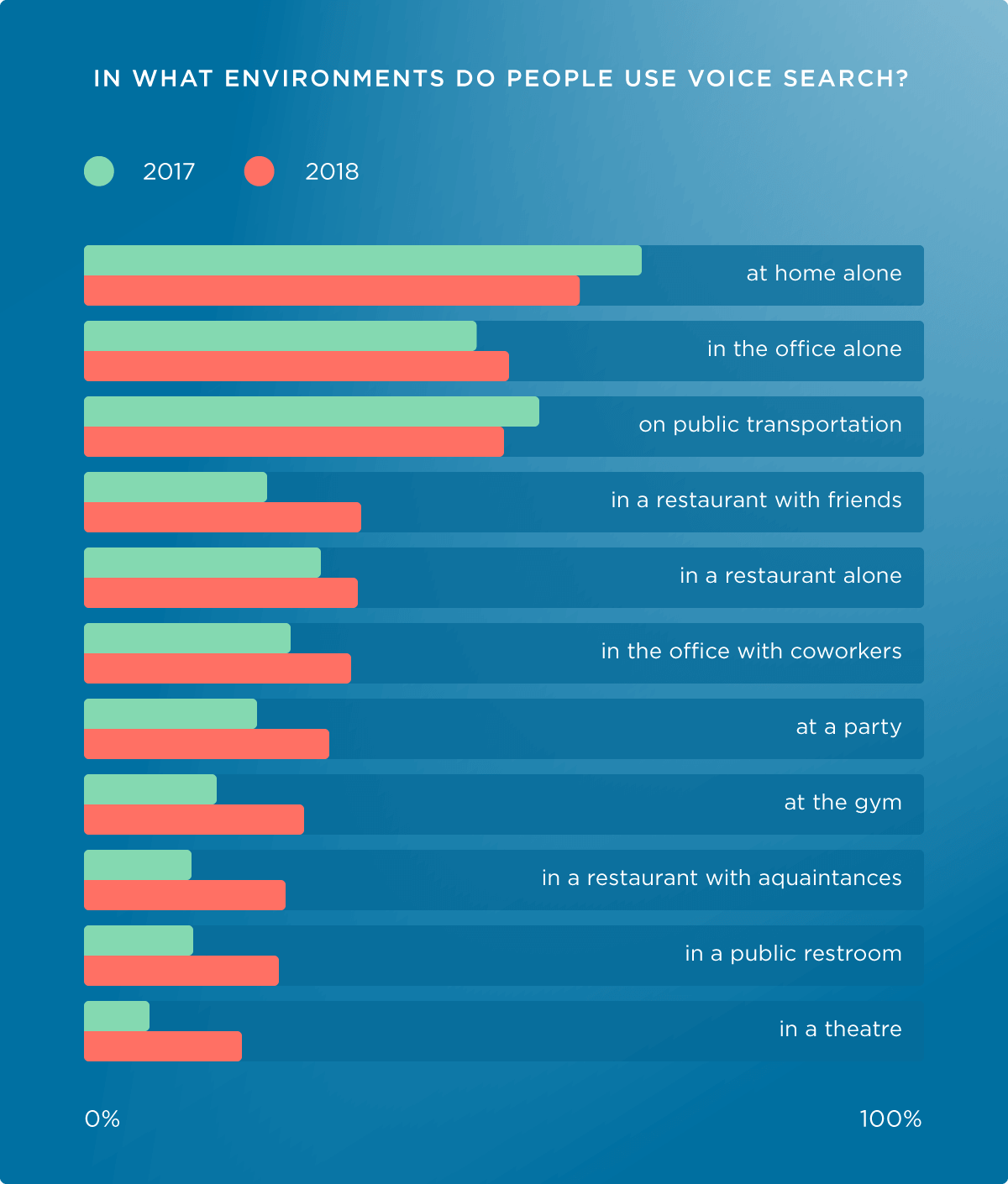
For example…
Let’s say you’re visiting Boston for a big meeting. And on the way to your meeting, you spill coffee on your shirt.
A few years ago, you’d head to the closest place with Wi-Fi, whip out your phone and type “clothing store Boston” into Google.

But thanks to LTE, location technology, and voice search, you’ll do a voice search wherever you happen to be.
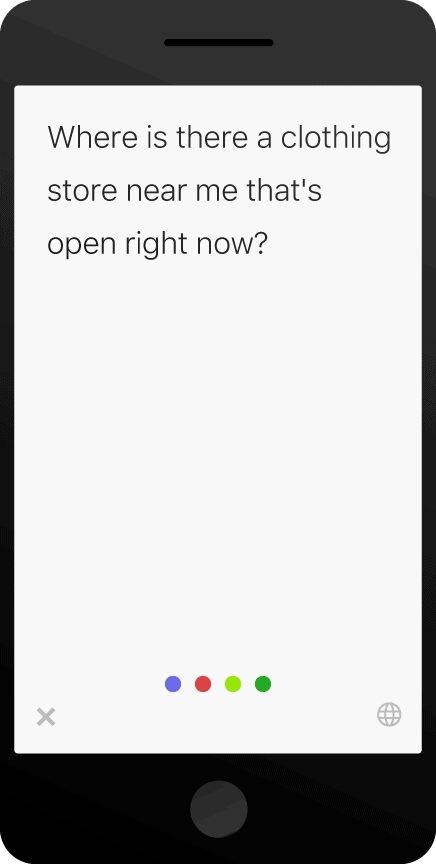
(And like I outlined earlier, the keyword you use will be very different than if you typed it out.)
Google is slowly changing from a search engine to an “answer engine”.
In fact, thanks to SERP features like Knowledge Graph and Featured Snippets, the number of organic clicks have dropped by 37%.
Why? You don’t need to visit a site to get your answer. It’s right there in the search results.
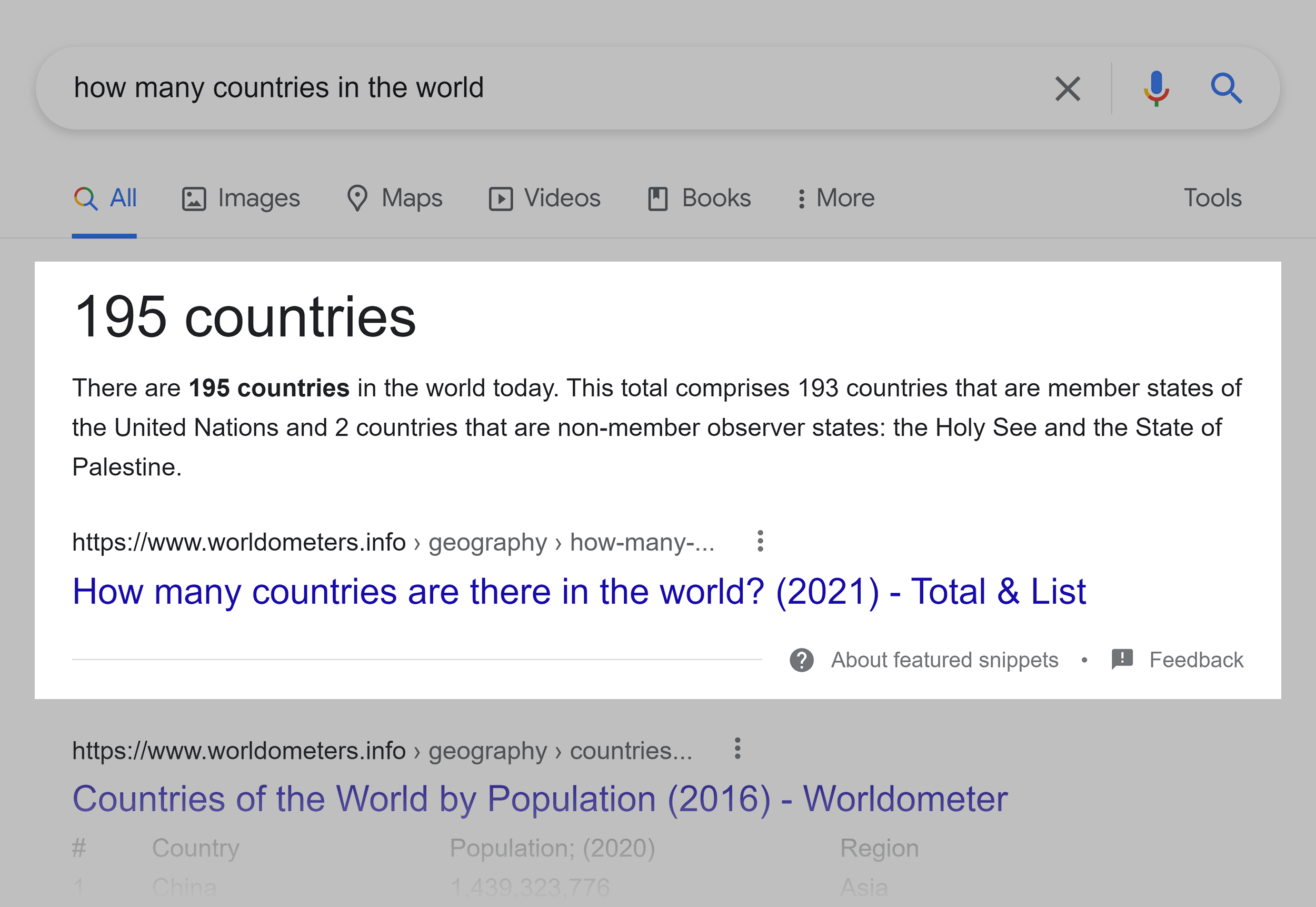
And Google is using this same answer-focused technology to provide voice search results.
For example, let’s say you wanted to know how many calories are in an apple.
Back in the day, you’d search for something like “apple calories”… and be forced to sift through 10 different results.

But with a voice search, you can get your answer read back to you within seconds.
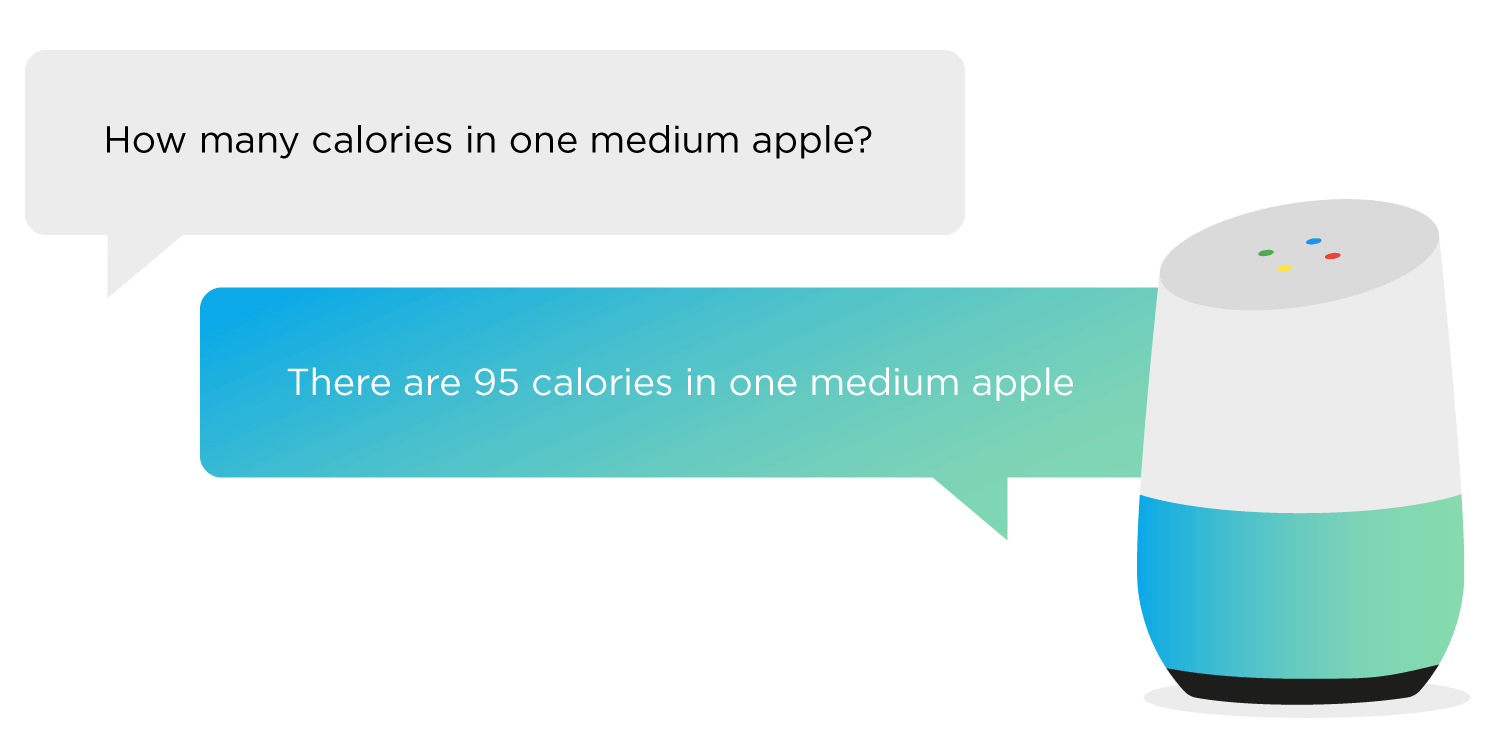
Sure, lots of voice searches are done on the Google app (or by “typing” with your voice on your phone).
This means that you still get a traditional set of 10 blue links.
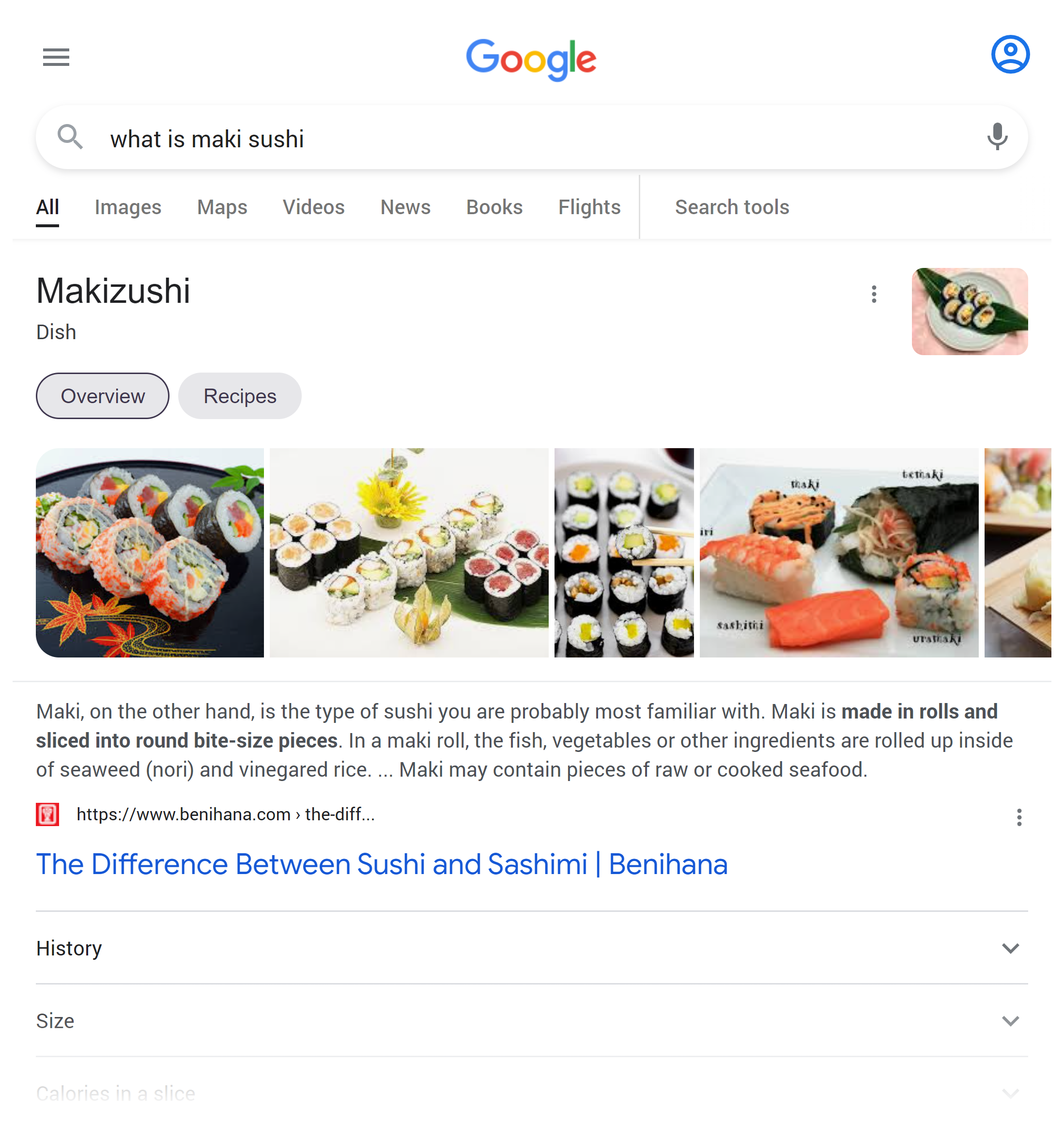
But this is becoming less and less common.
In fact, even when you get 10 blue links from a voice search, Google usually reads the Featured Snippet back to you.
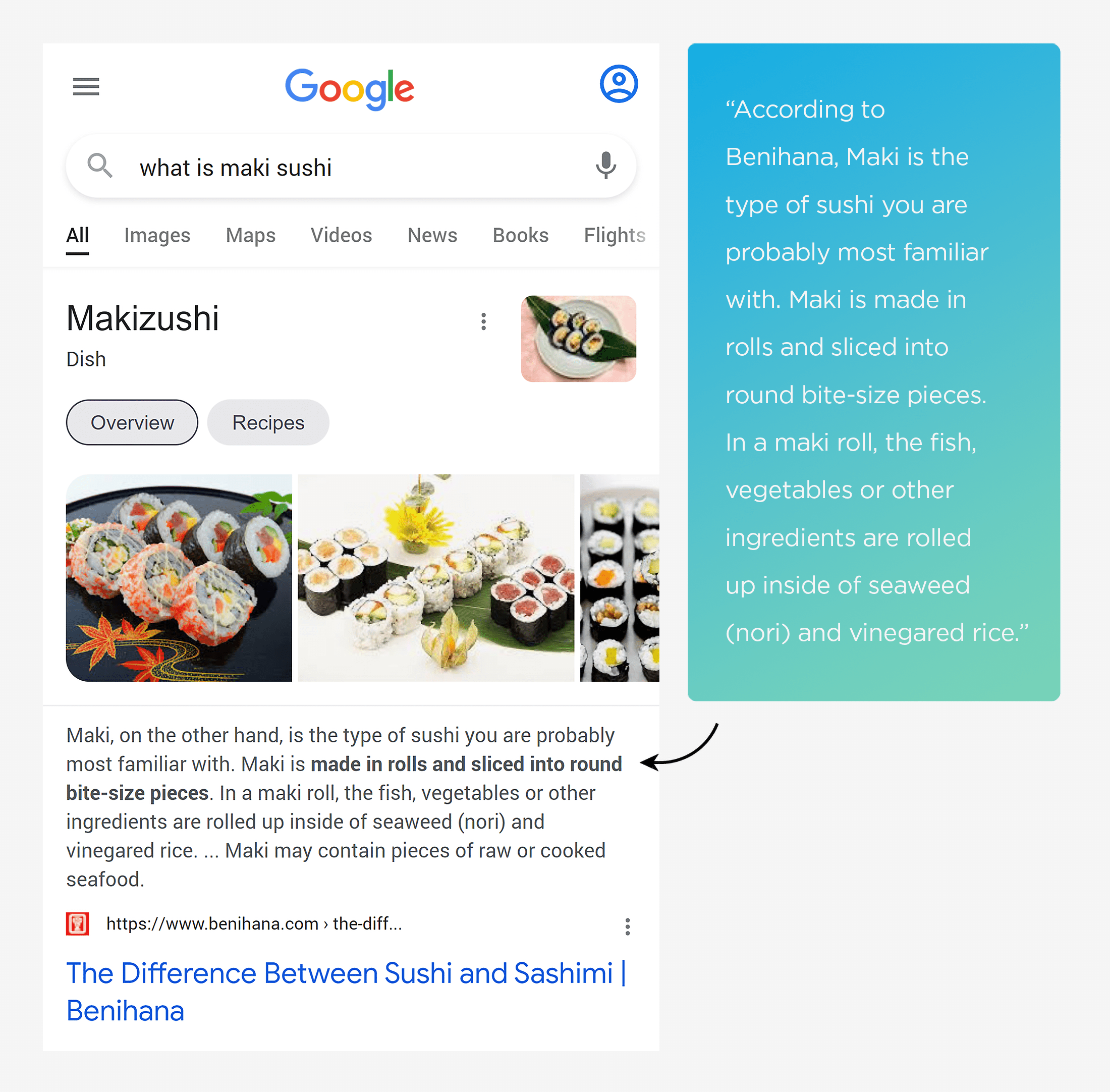
So: what does this mean for SEO and content creators?
Otherwise, it’s going to be harder and harder to get your content in front of people.
That said, don’t stress. I’ll show you exactly how to create voice-optimized content in chapters 4 and 5.
But first, it’s time for me to show you how to do voice search-focused keyword research.

In this chapter, I’m going to show you how to do keyword research in a voice search world.
Specifically, I’m going to give you three actionable strategies that you can use to find voice search keywords.
Let’s dive right in.
Like I mentioned in chapter 2, voice searches are more natural and conversational than text-based searches.
So robotic keywords like this…

…are slowly getting replaced with keywords like this:

And when you evaluate keywords, you’ll want to keep this fact in mind.
For example, let’s take this set of results from the Google Keyword Planner:
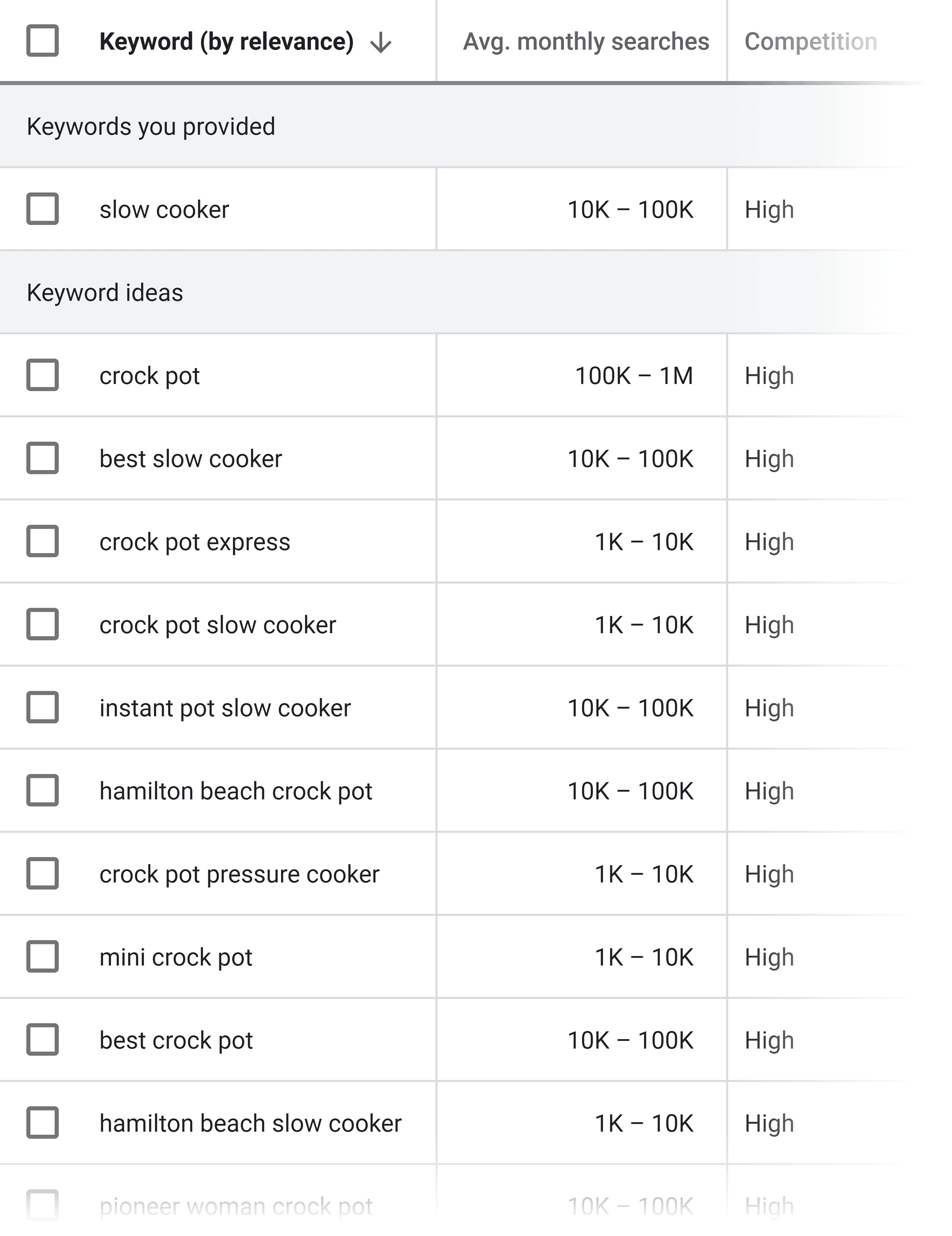
Most people would size up this list of keywords based only on:
But thanks to voice search, you ALSO want to check to see if the keyword is conversational.
In other words:
Natural sounding keywords are going to get a big boost in search volume as voice search grows.
(And the opposite is true: if a keyword sounds robotic, expect fewer people to search for that term in the years to come.)
Most people completely avoid really long keywords.
Why?
It’s simple: VERY few people search for them.
But as more people search with their voice, “normal” keyword length is getting longer and longer:
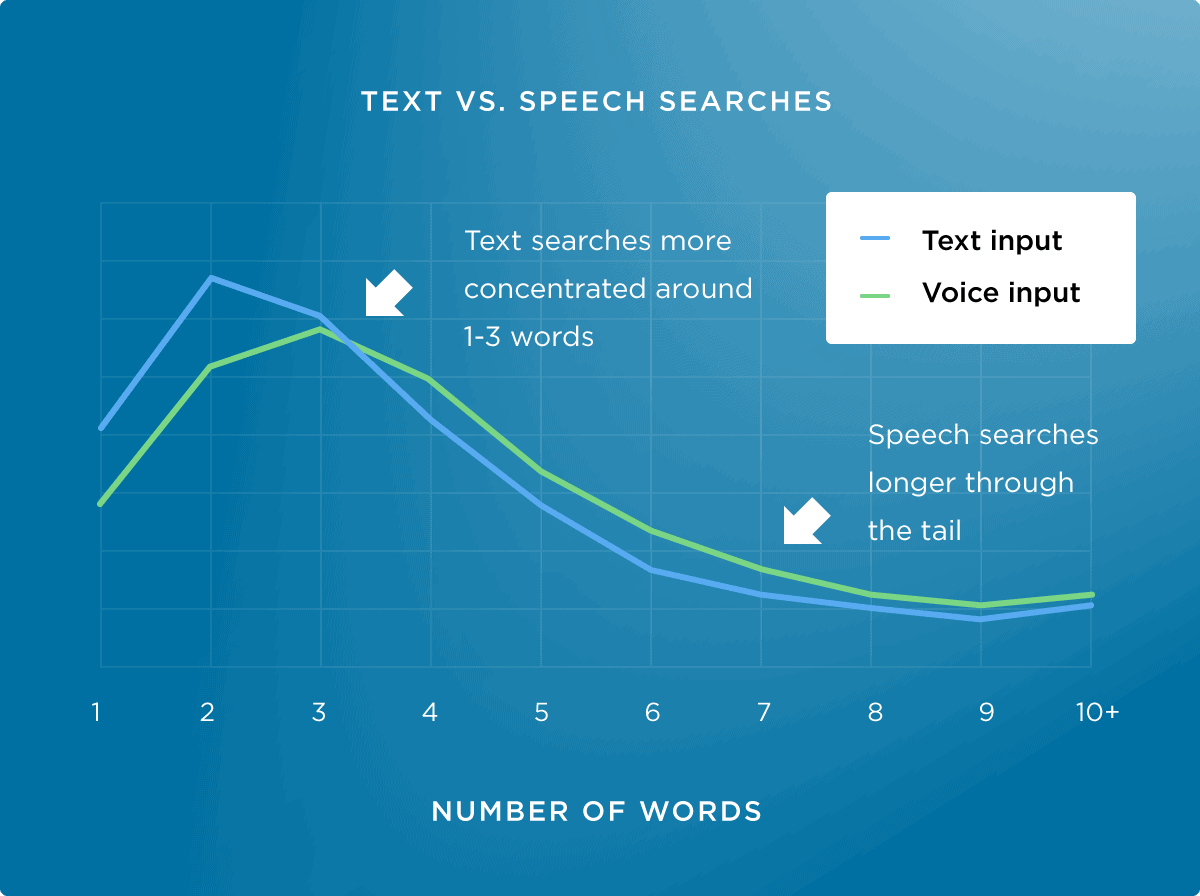
So don’t be afraid to optimize your content around 5+ word terms, like these:
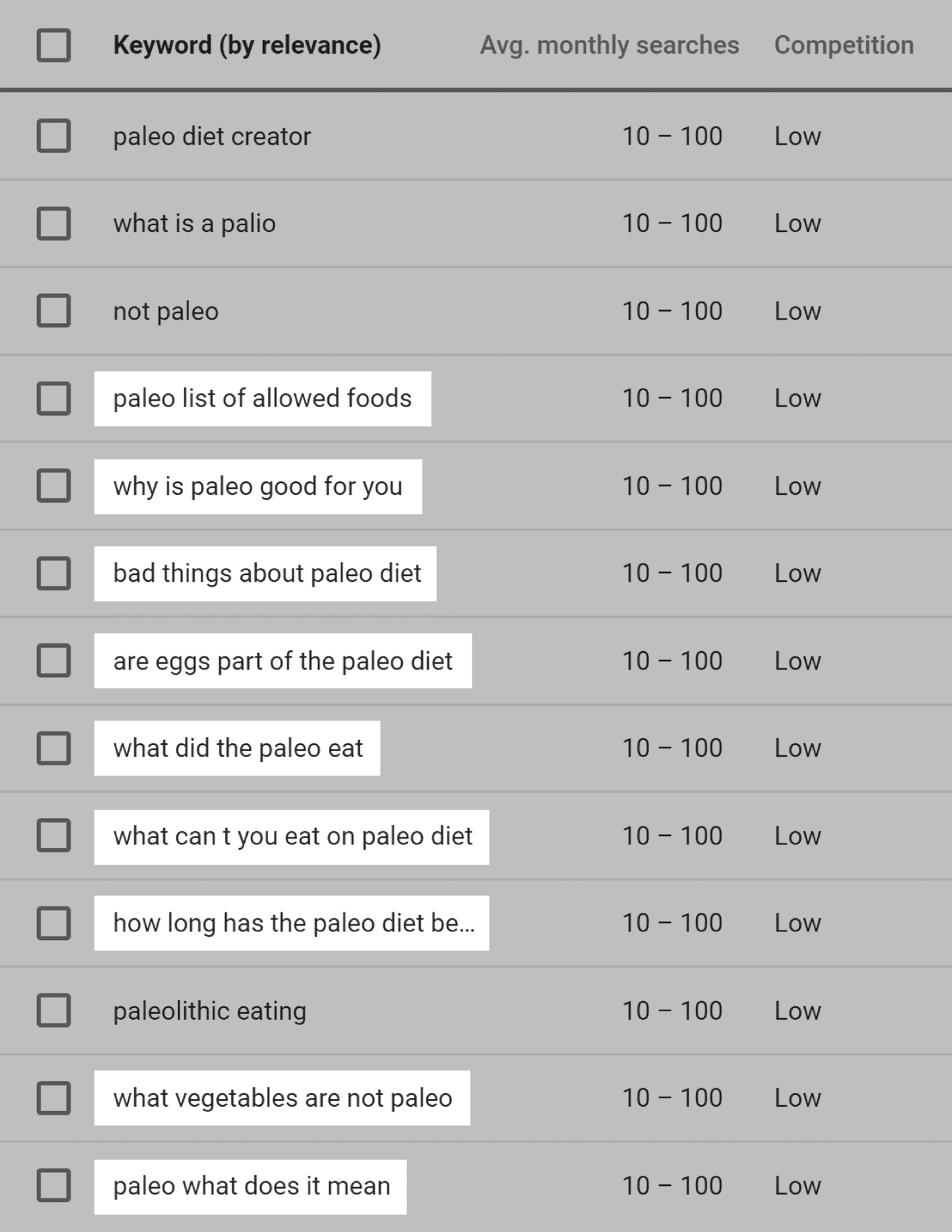
Now, to be clear:
I don’t think you should optimize an entire page around really long terms.
Instead, you want to sprinkle these long keywords in your content.
As you’ll see in Chapter 4, if Google finds a keyword anywhere in a piece of content, they’ll use it as a voice search result.

Thanks largely to voice search, question keywords are up 61% year-over-year:
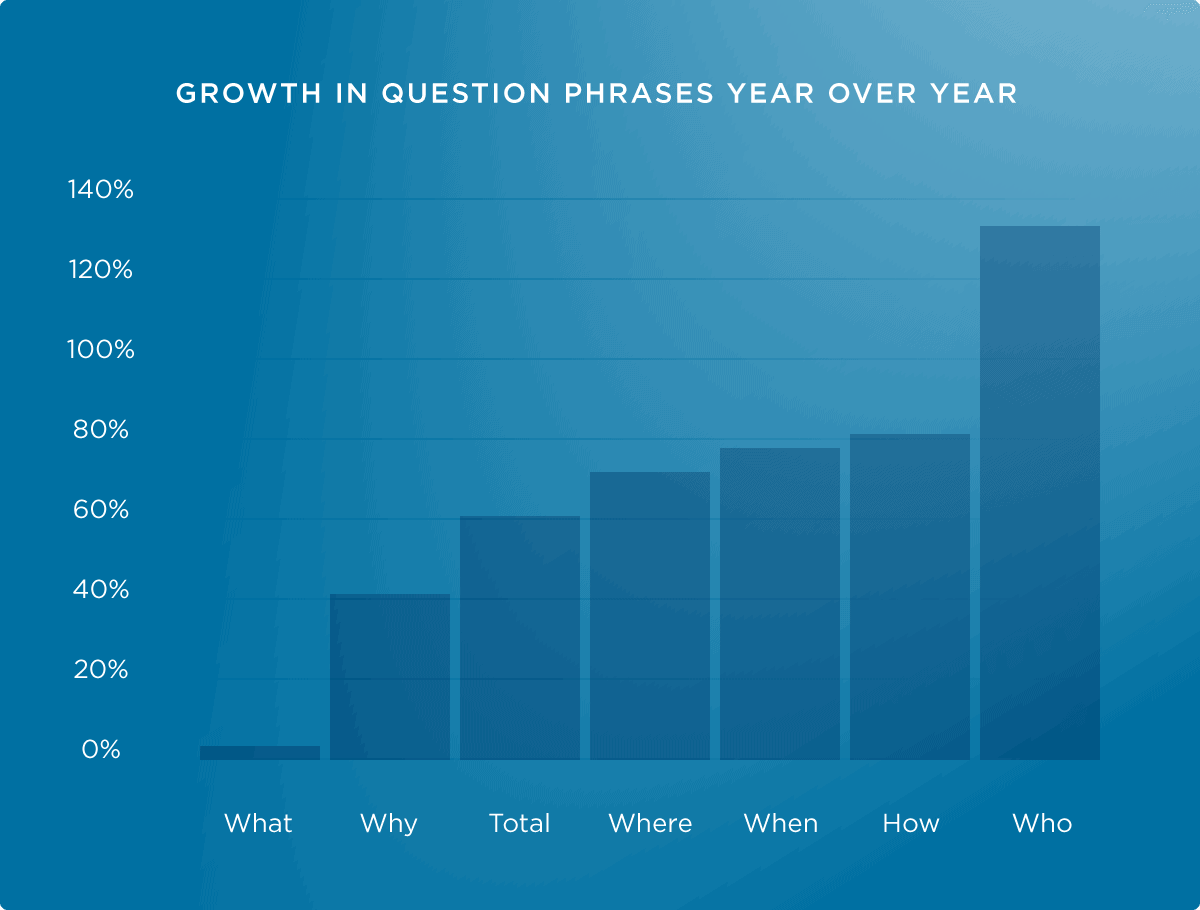
A few years ago, if you wanted to get higher rankings in Google, you might search for something like this:
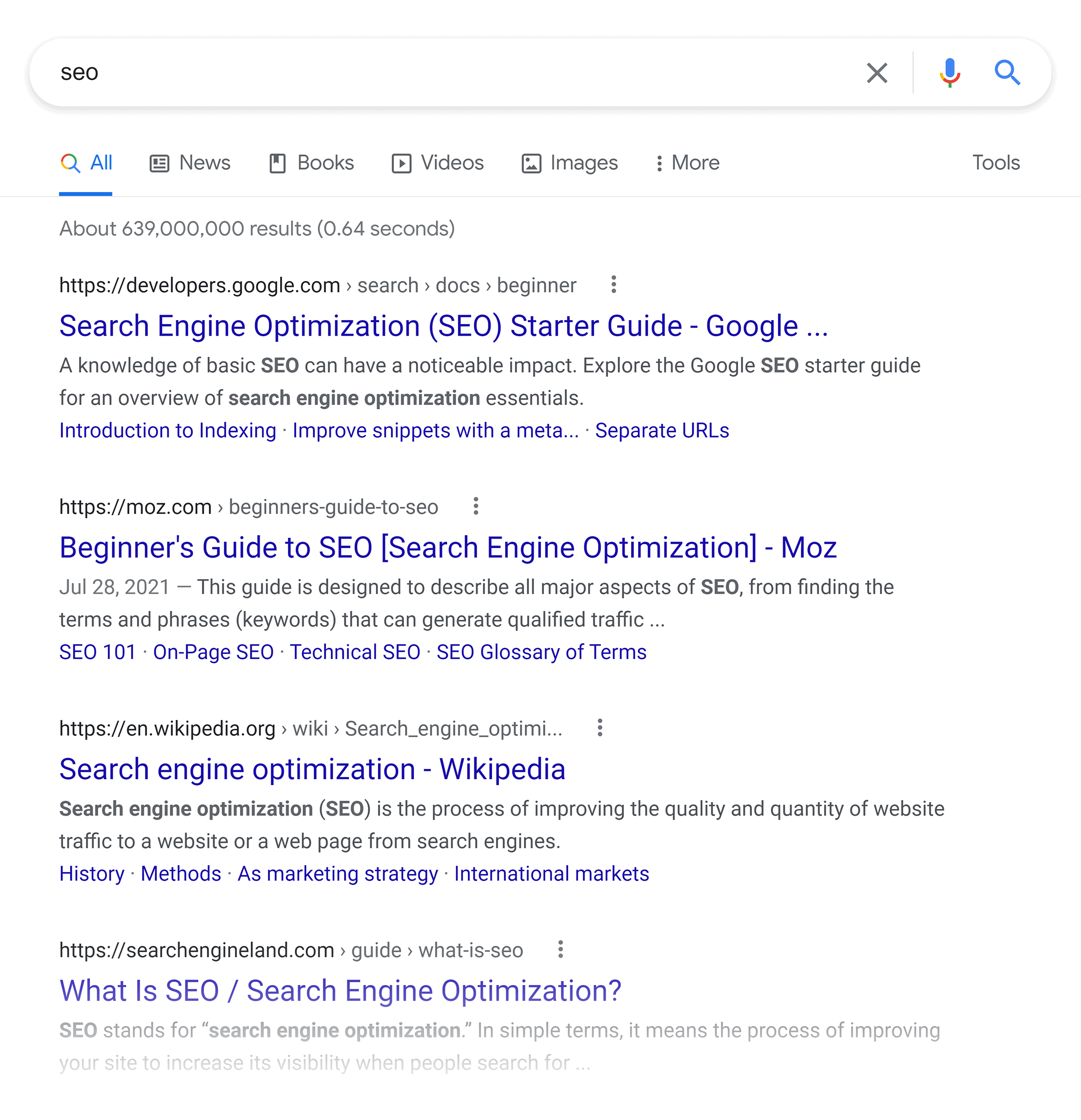
But you’re probably not going to whip out your iPhone and say: ”Hey Google…SEO”.
Instead, when you search with your voice, you’re going to ask a question.

You can already find question keywords in any keyword research tool:
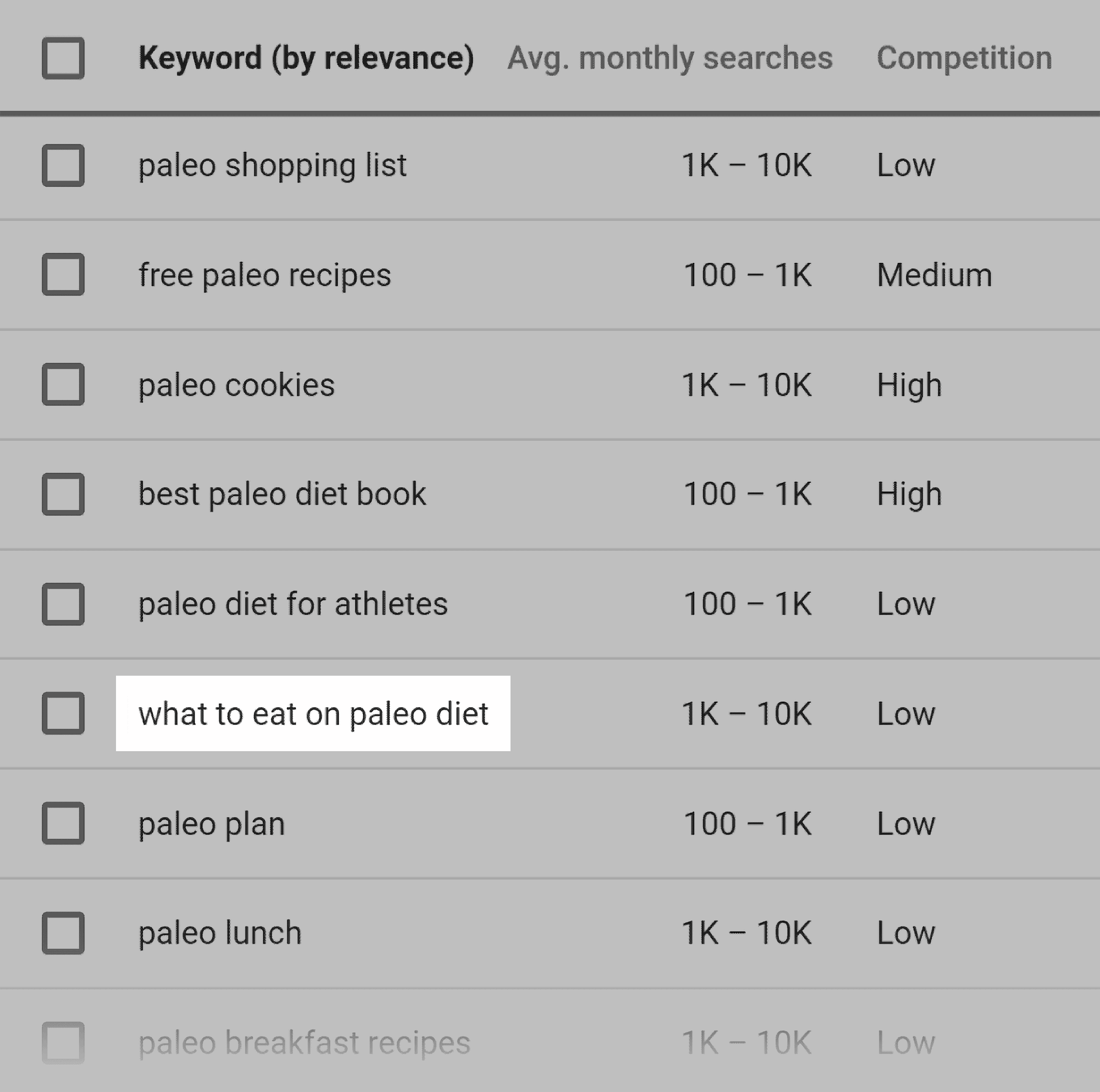
But it takes a lot of digging.
If you want to scale this process, I recommend Answer the Public…
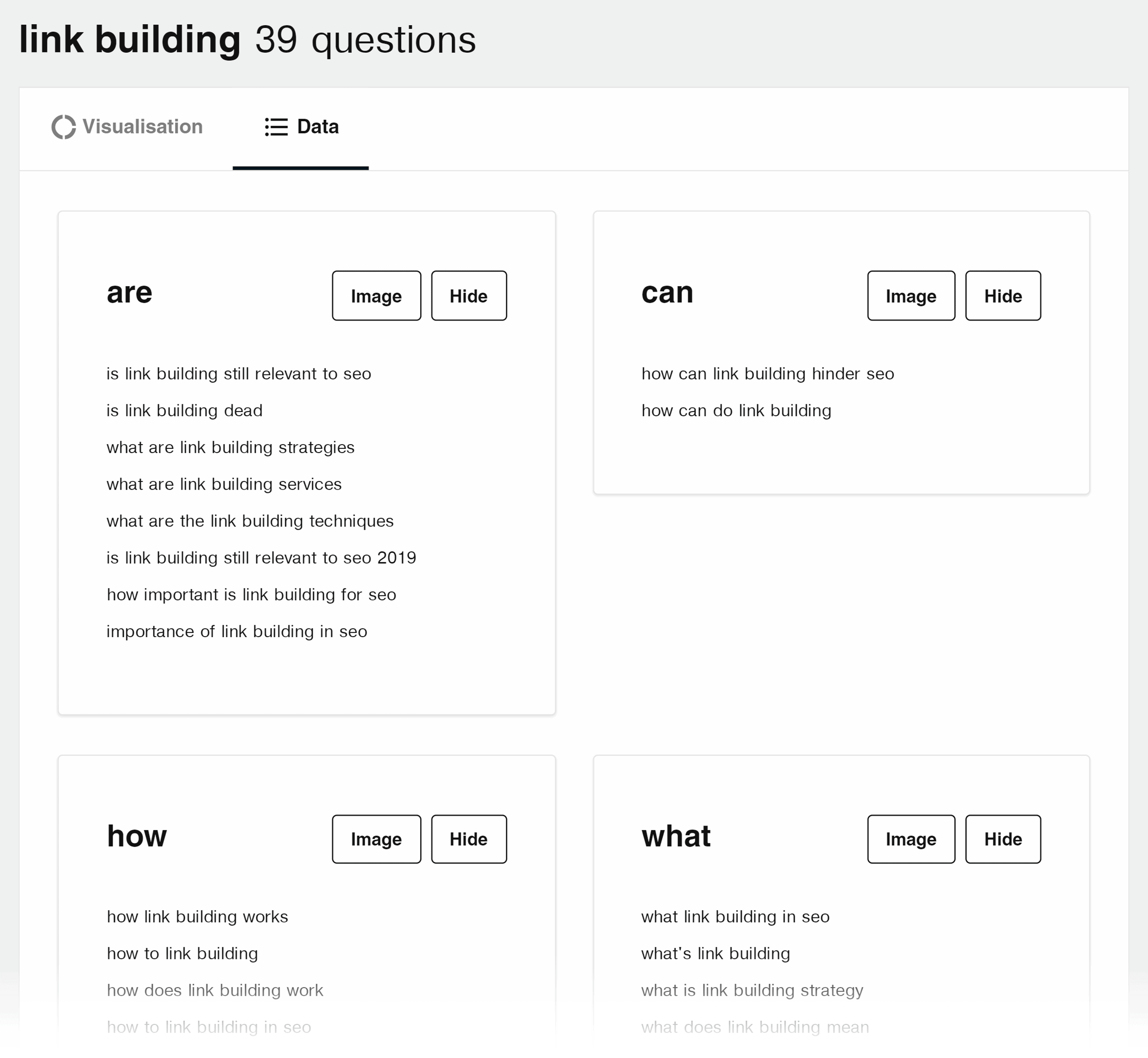
…and BuzzSumo’s Content Discovery:
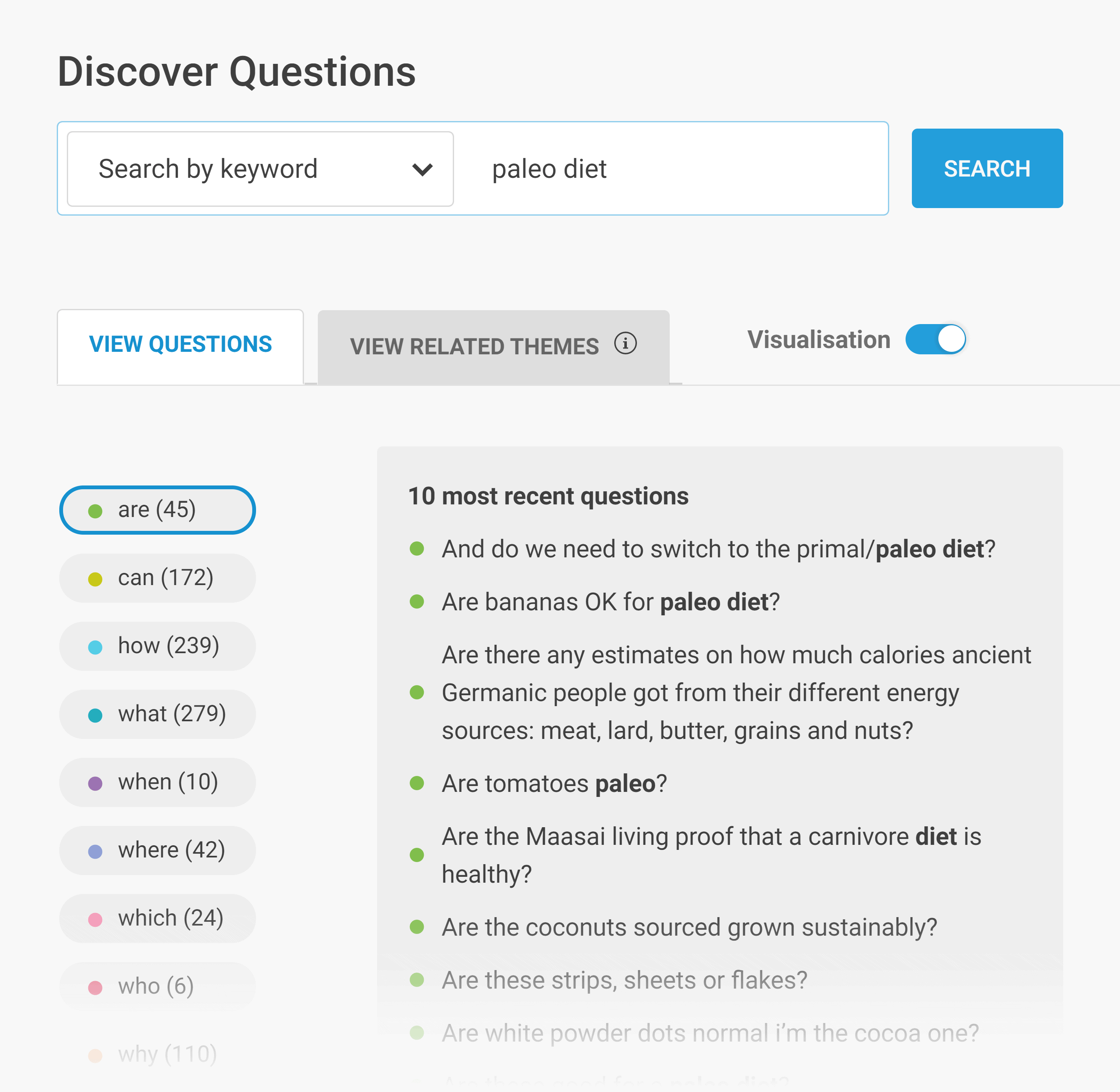
Now that you’ve found a handful of voice search keywords, it’s time to optimize your content around them.

In this chapter, you’re going to learn how to optimize your content for voice search.
And I have some great news:
You DON’T need to completely overhaul your site.
In fact, you can get your site ready for voice search SEO with a few simple tweaks.
Few years ago we conducted the largest voice search SEO ranking factors study ever.

And one of our most interesting findings is that Google tends to answer voice search queries with short, 29-word results:

For example, the Google Home results for the query “are figs good for you” is:

(That result is 28 words.)
That’s why it’s important that your content answers someone’s query in 30 words or less.
That said:
It doesn’t make sense to write a 30-word blog post.
That’s why you want to…
FAQ pages are PERFECT for voice search.
Why?
Well, as I mentioned earlier, question keywords are on the rise.
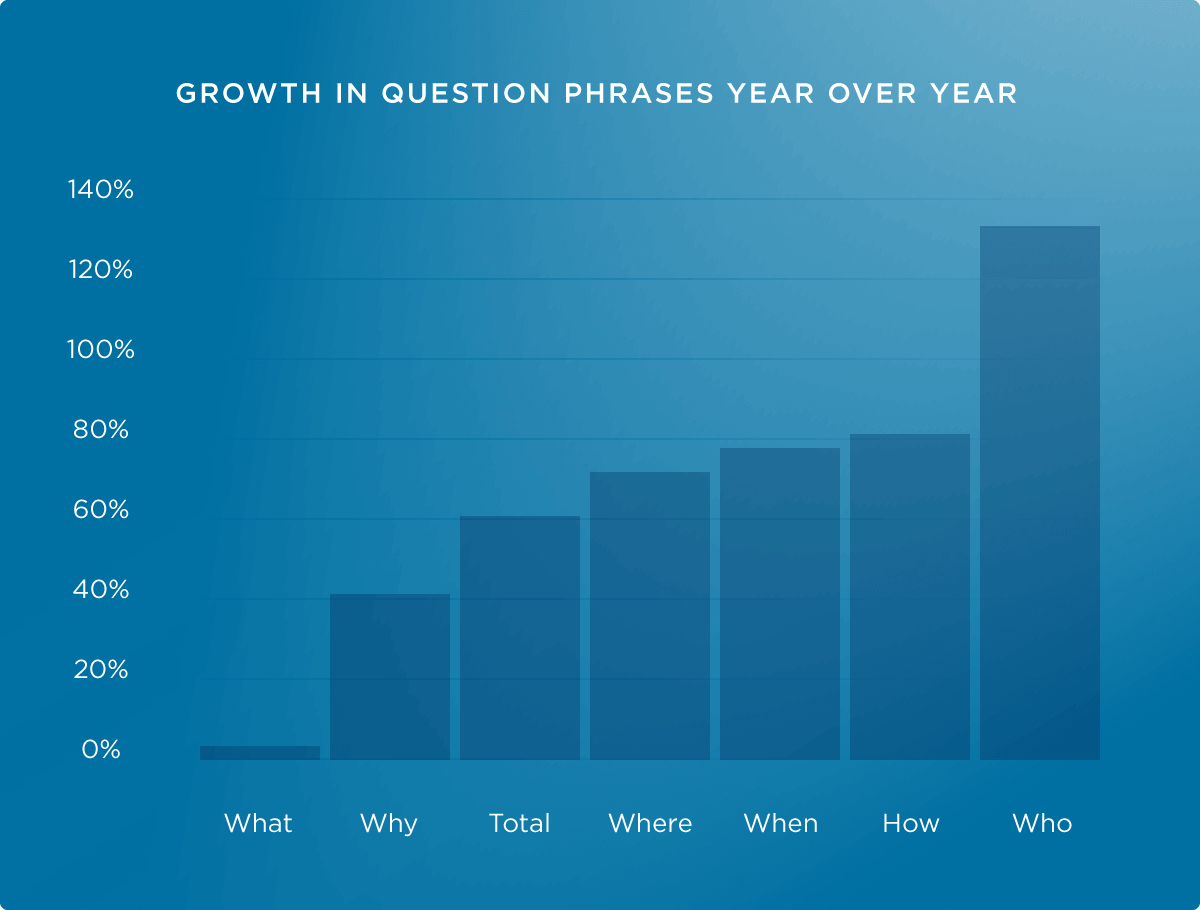
And you just learned that Google wants to give their users 30-ish word answers.
FAQ pages check both of these boxes.
That’s probably why voice search results are 1.7x more likely to come from an FAQ page compared to desktop results.
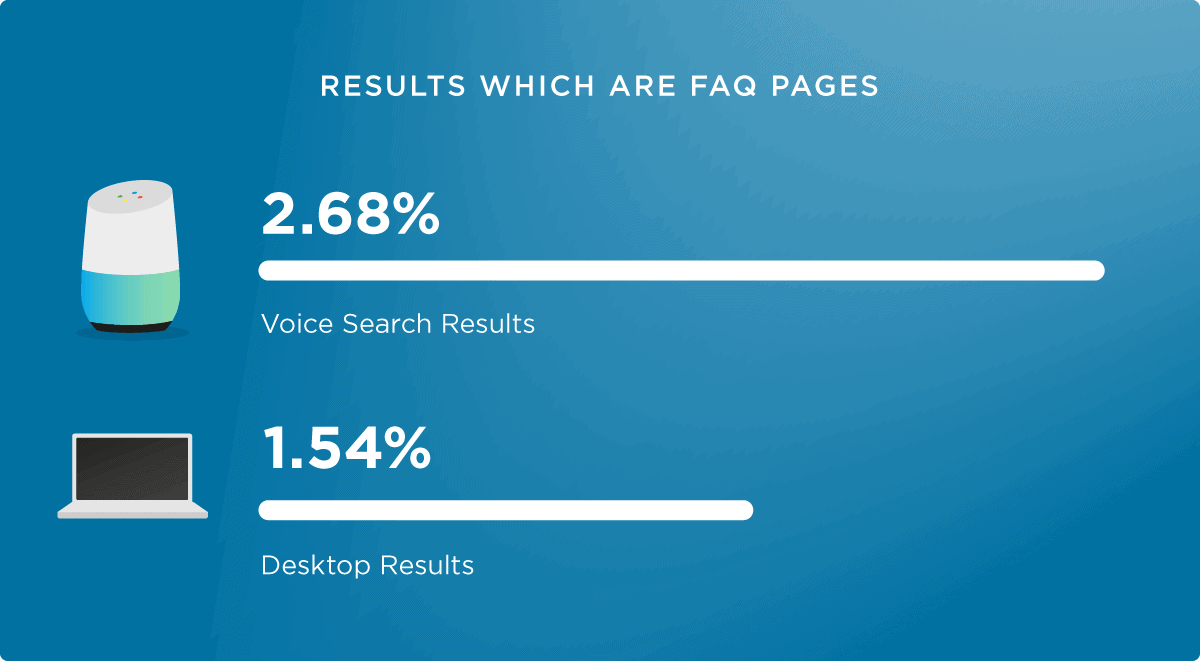
For example, if you do a voice search for “how do car insurance claims work”, here’s what you get back:
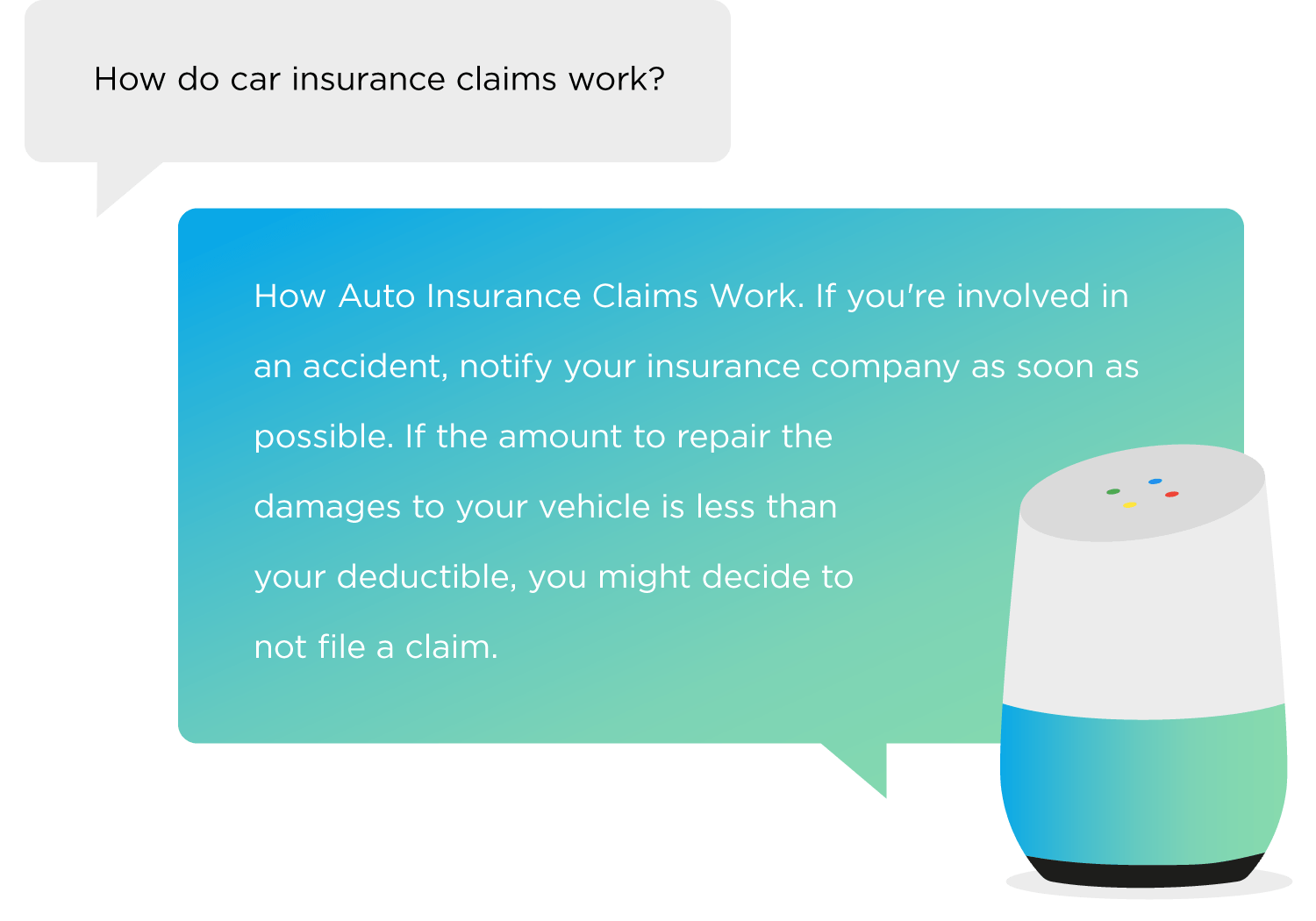
Sure enough, Google pulled that answer from a FAQ page:
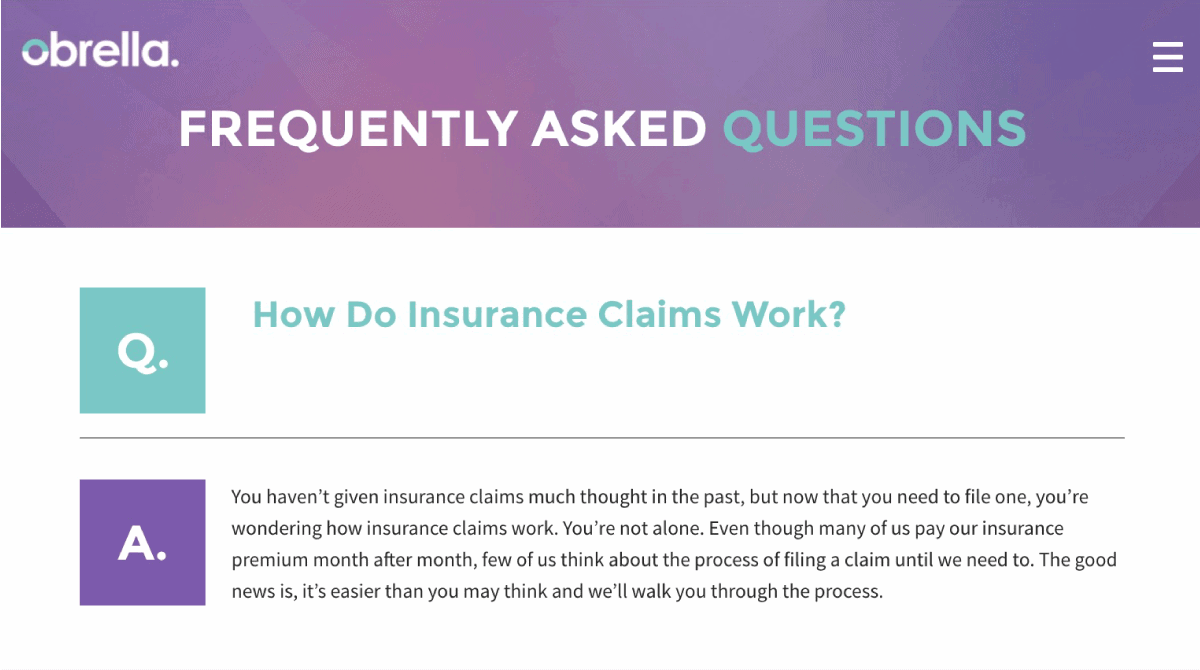
And that’s just one keyword. FAQ pages can rank for hundreds of different voice search queries.
For example:
If you do a voice search for “how do home insurance claims work”, the result comes from that same FAQ page.

Getting in the Featured Snippet is like a voice search cheat code.
In fact, 40.7% of voice search answers come from the Featured Snippet:
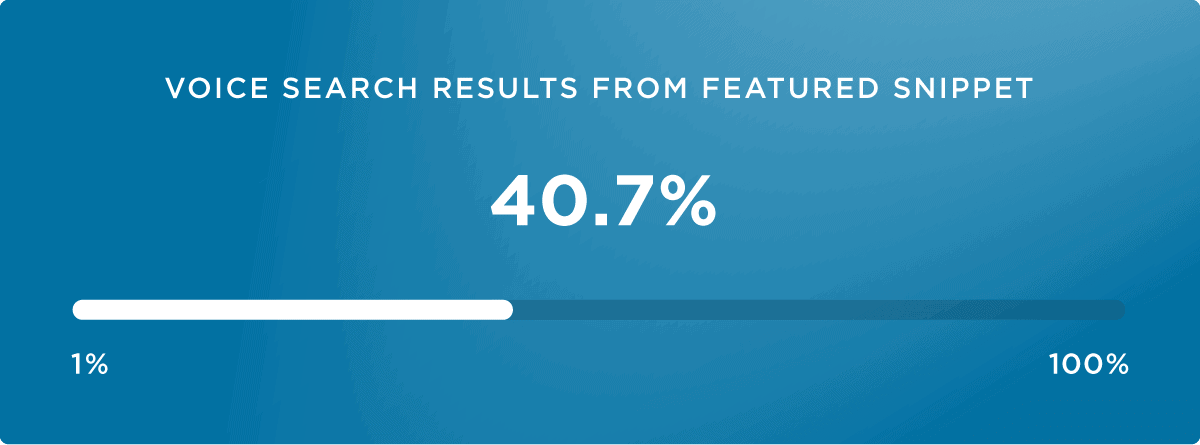
For example, if you do a voice search for “Is ice water bad for dogs?” with the Google iPhone app, the answer you get is:
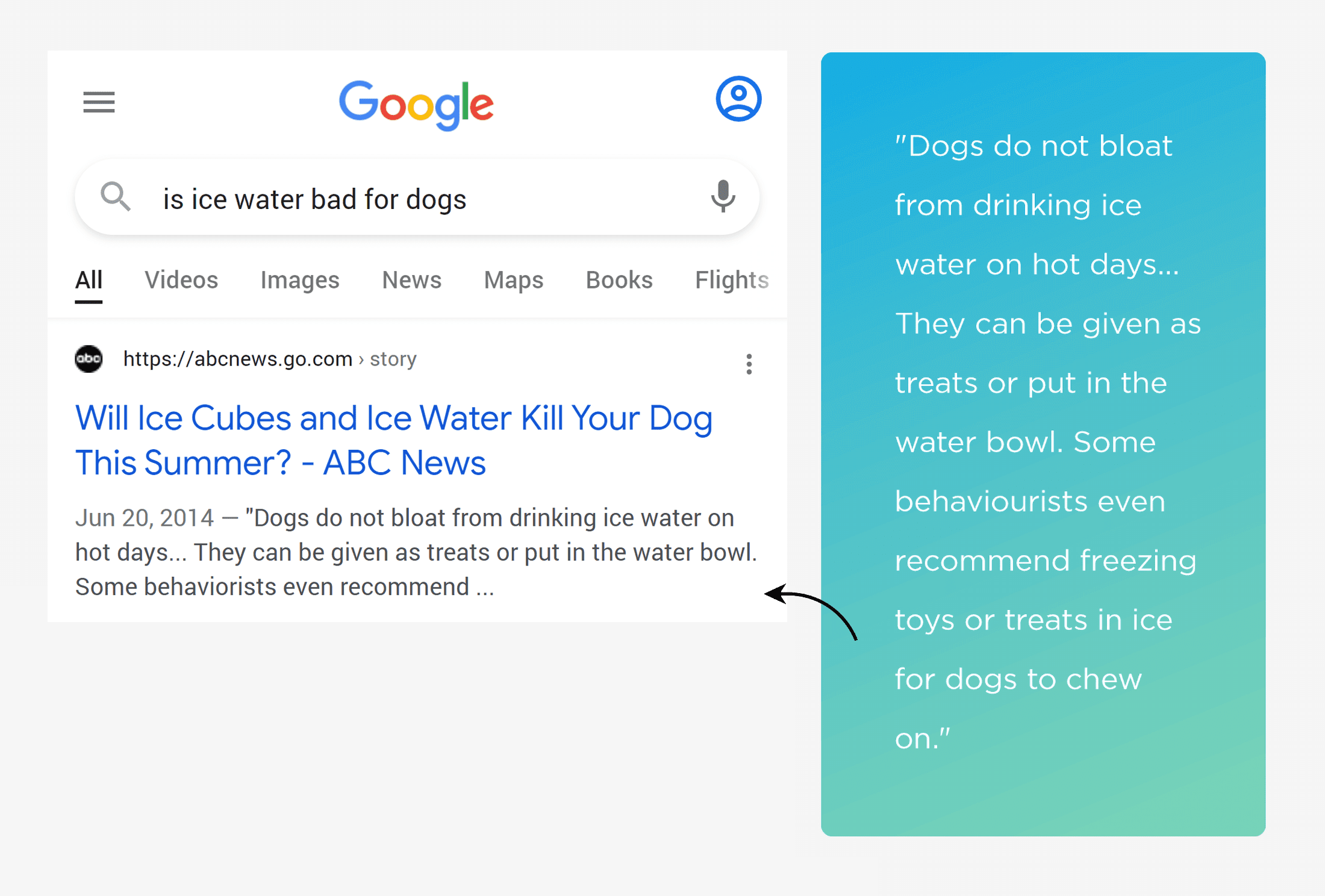
And if you look at the search results, you can see that Google just read the first result.
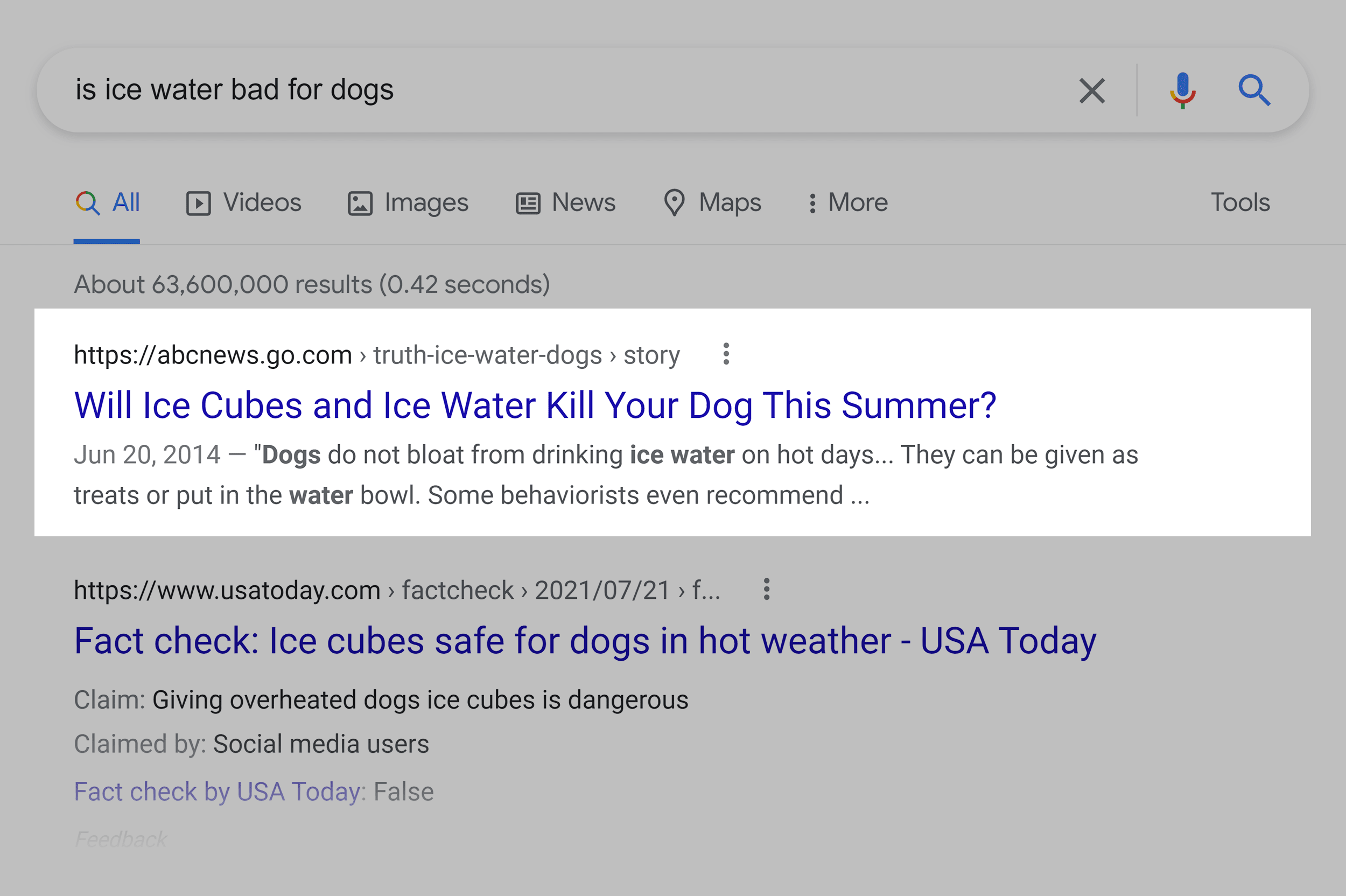
And keep this in mind:
Getting in the Featured Snippet is even more important for Google Home and Alexa search results.
Why?
These devices only give you ONE answer.
So if you don’t rank in Featured Snippets, you’re going to be invisible on those devices.
Voice searches are more natural and less robotic than keyboard searches.
And you want to write your content the same way.
That way, when someone searches for…

…Google will find a “match” in your content:
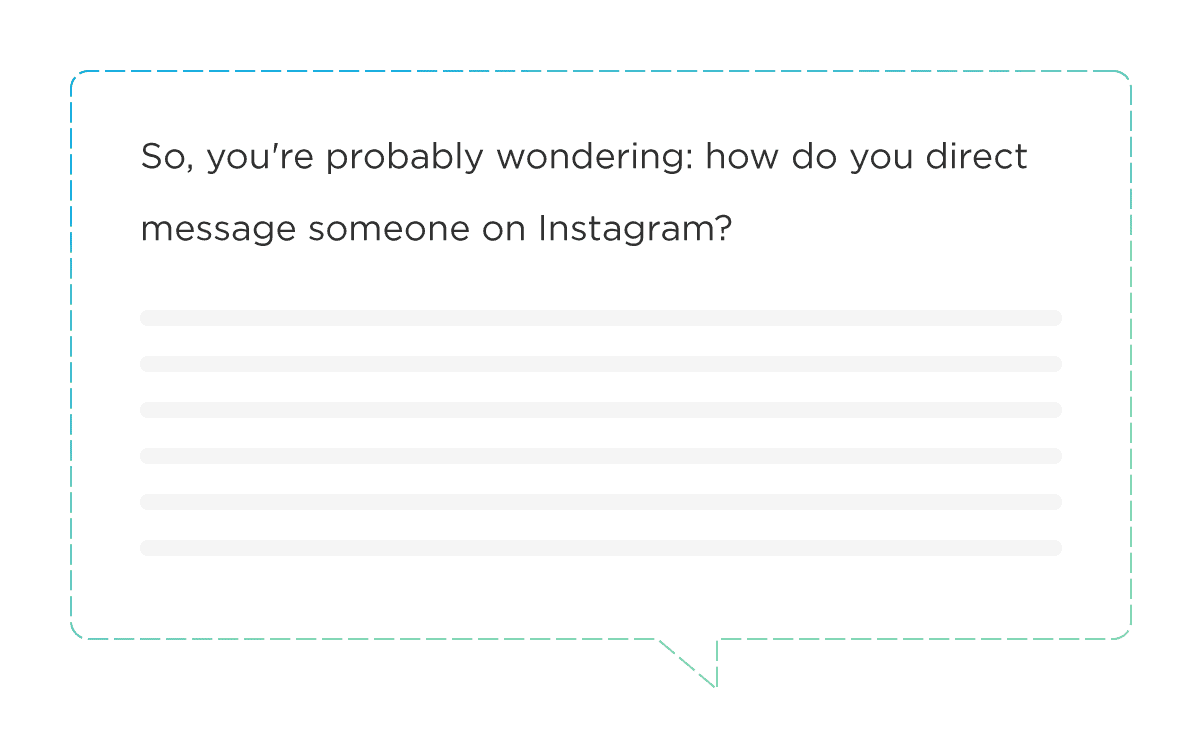
(A match that wouldn’t happen if you used a robotic phrase like: “how to dm on Instagram”.)
Yes, voice searches are significantly longer than keyboard searches.
But that doesn’t mean you want to create 1000 pages optimized around 1000 different voice search terms.
In fact, one of the most surprising findings from our voice search ranking factors study was that less than 2% of all voice search results had the exact keyword in their title tag:

Instead, Google will pull an answer from a page…
…even if that answer makes up a small section of the content.
For example, I just did a voice search for “do post offices accept credit cards”.

And the result came from a page that only answered that question halfway down the page:
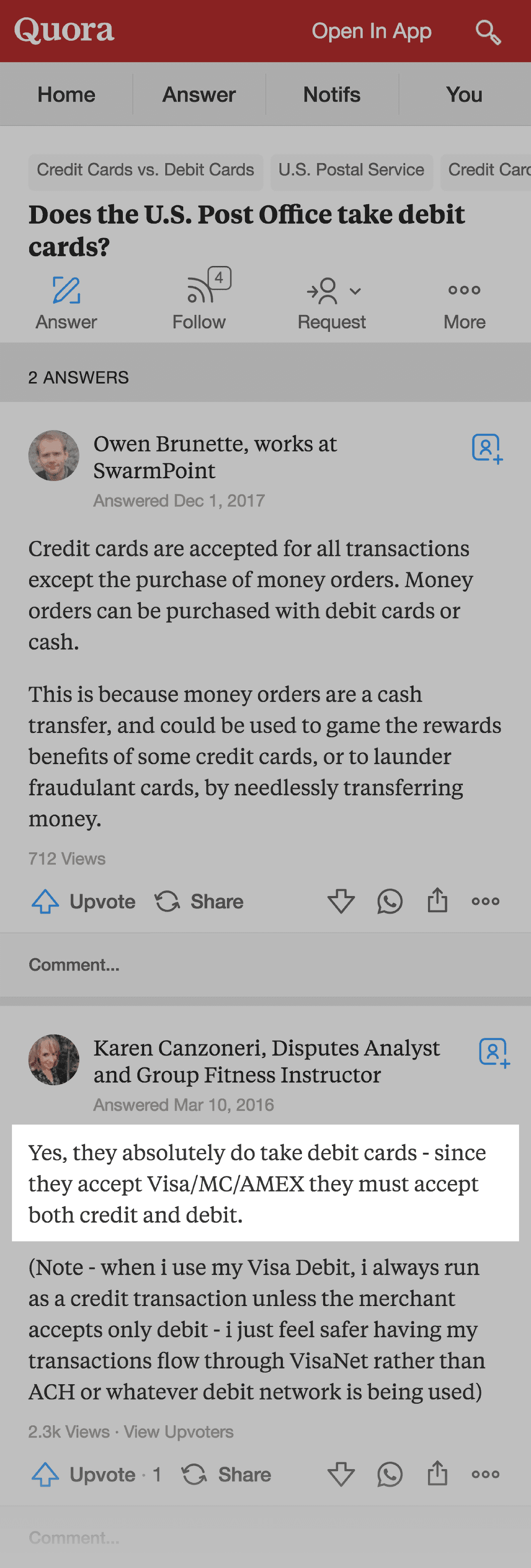
But because the answer was short and sweet, Google decided that it was the best result for that query.
Embed lots of long tail keywords in your content.
When you do, your single page can rank for lots of different voice search queries.

This chapter is all about teaching you advanced voice search SEO tips and strategies.
So if you’re going “all in” in voice search, you’ll love the actionable advice in this chapter.
Let’s get started.
You already learned that question keywords are on the rise.
(Mostly driven by an increase in voice search.)
And when you optimize for questions, make sure to include “filler words”.
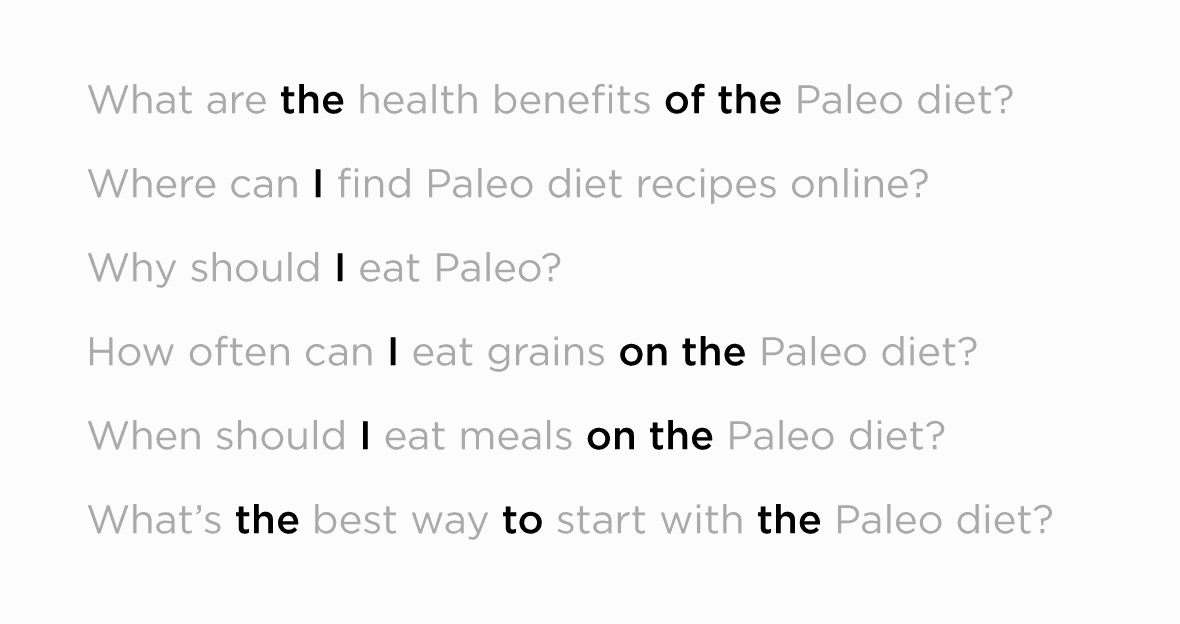
Why?
Well, Bing’s Purna Virji states that:
The more matches you have, the more likely your ad will show on a voice search that includes words like “a” and “me” and “for.”
Very cool.
The average voice search result is written at a 9th grade reading level.

This means you want to AVOID jargon and fancy words in your content.
(To be honest, you should avoid this stuff anyway. But it’s nice to know that clear writing also helps your voice search rankings.)
The loading speed of a voice search result is 3.8x faster than your average website.
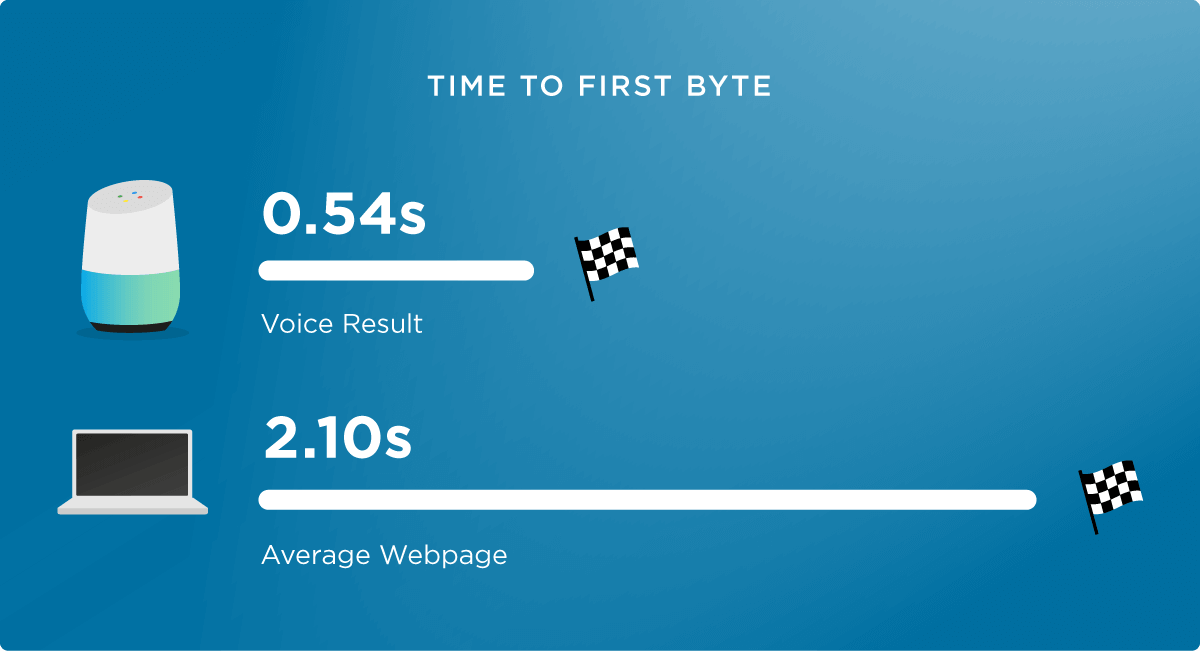
Again, you want to have a fast-loading site anyway.
(Especially considering that Google’s Speed Update is now live.)
This leads us to…
Did you know that sites with lots of links rank more often in voice search?
It’s true.
In fact, the average Domain Rating of a voice search result is nearly 77.

(Which is high.)
And unlike traditional SEO, the authority of the page doesn’t seem to be an important voice search ranking signal.

This data is from our voice search correlation study. So it’s impossible to know exactly what’s going on using our data alone.
But my theory is this:
Many voice search “results” are actually just a single result.
And Google needs to know that they’re giving you an answer from a trusted source.
(In other words, a domain with lots of trust and authority.)
So they lean on domain authority over page authority.
For example, here’s a Google Home voice search:
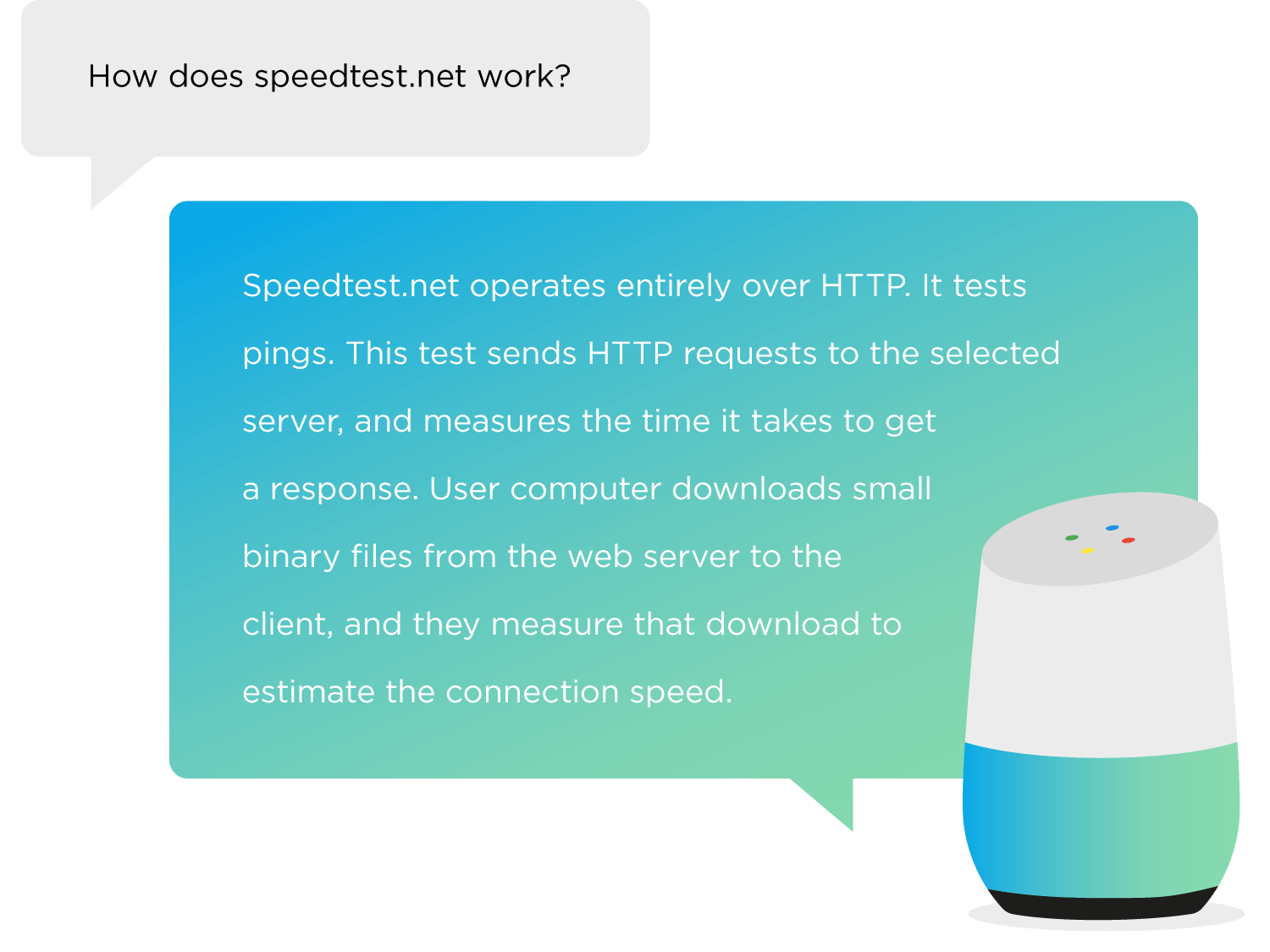
The answer comes from an authoritative domain (speedtest.net).
But the page itself has a pretty low Page Authority (13).
The bottom line is this:
If you want to rank in voice search, focus on building up your Domain Authority.
When you do, Google will want to use your site as a source… even from pages on your site that don’t have a ton of links.
You might have heard that the average word count of a first page Google result is approximately 1,447 words:

But what you may not know is that voice search result pages tend to be even longer (2300 words).

To be clear:
I don’t think Google’s voice algorithm has a sweet spot for long content.
Instead, this is just a numbers game:
A page with lots of content is more likely to “match” a voice search query.

Back in the day, “local” searches meant city and state.
So if you wanted to find a dry cleaner in New York, you’d Google something like this:
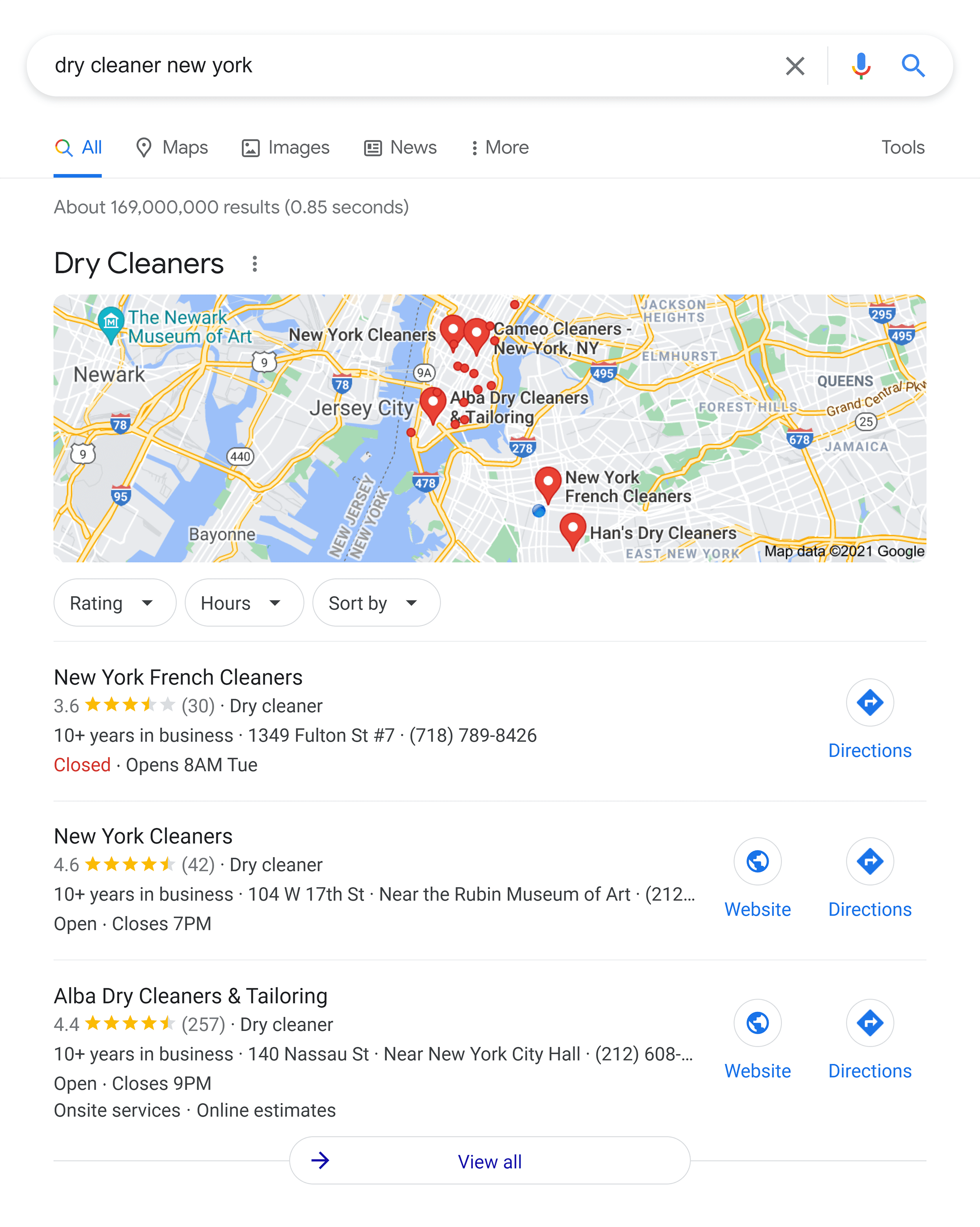
Over the last few years, local searches have gone from “city”… to “block”.
(Mostly thanks to an explosion in “___ Near Me” searches.)
So if you run a local business, you NEED to optimize around terms that voice searchers use.
For example, the other day I was looking for a salad place. And I happen to be near Fenway Park.
So I used the Google app to search for: “salad near Fenway”.
And I got a list of salad places near Fenway Park:
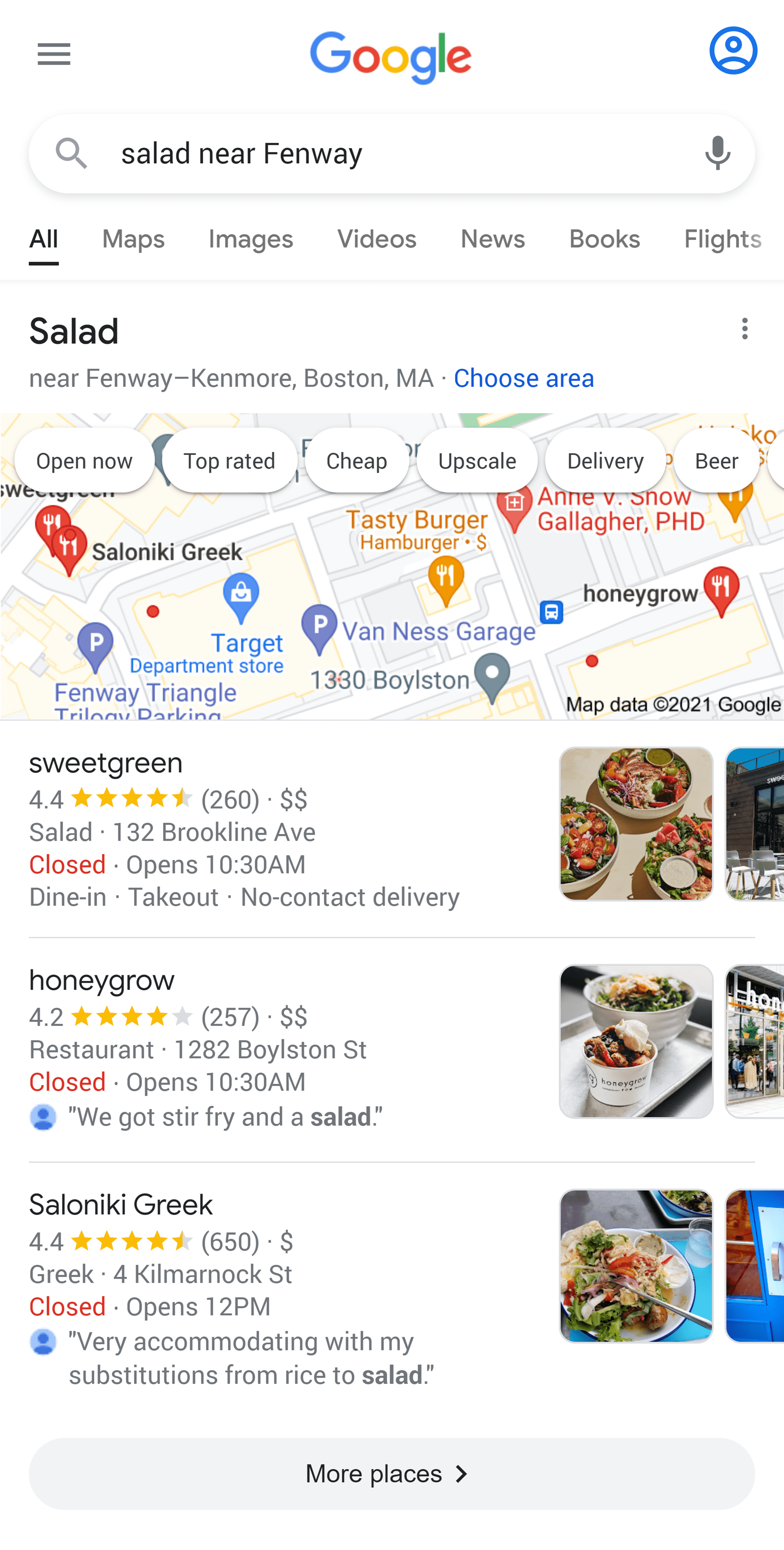
Businesses that optimize for “near Fenway” or “in the Fenway area” are going to rank best for hyper-local searches like this.
(Which means more customers walking through the door.)
You may have noticed that Google recently rolled out what I call “Video Featured Snippets”.
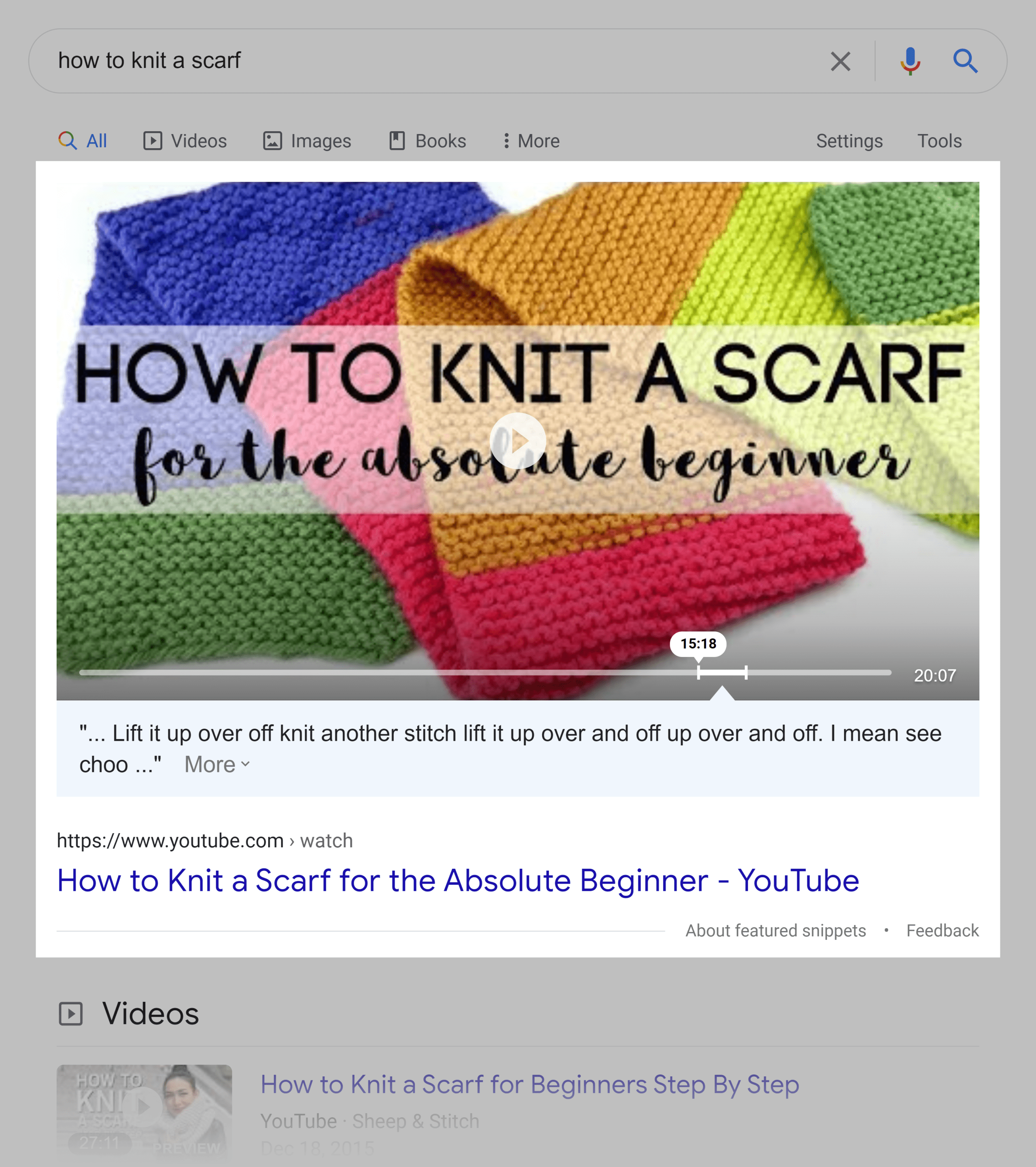
As you can see, it’s a video result.
But instead of a link to a YouTube video, Google pulls out the section of the video that’s relevant to your search.
And from my informal testing (and data from Bing), these types of video results tend to pop up more often for natural language queries.
(The type of natural language queries that people use in voice searches.)
Here’s a perfect example of what I mean…
Let’s say that you want to rank your videos on YouTube. So you decide to search for some video SEO advice.
If you use a keyboard, you’re probably going to search for something like:
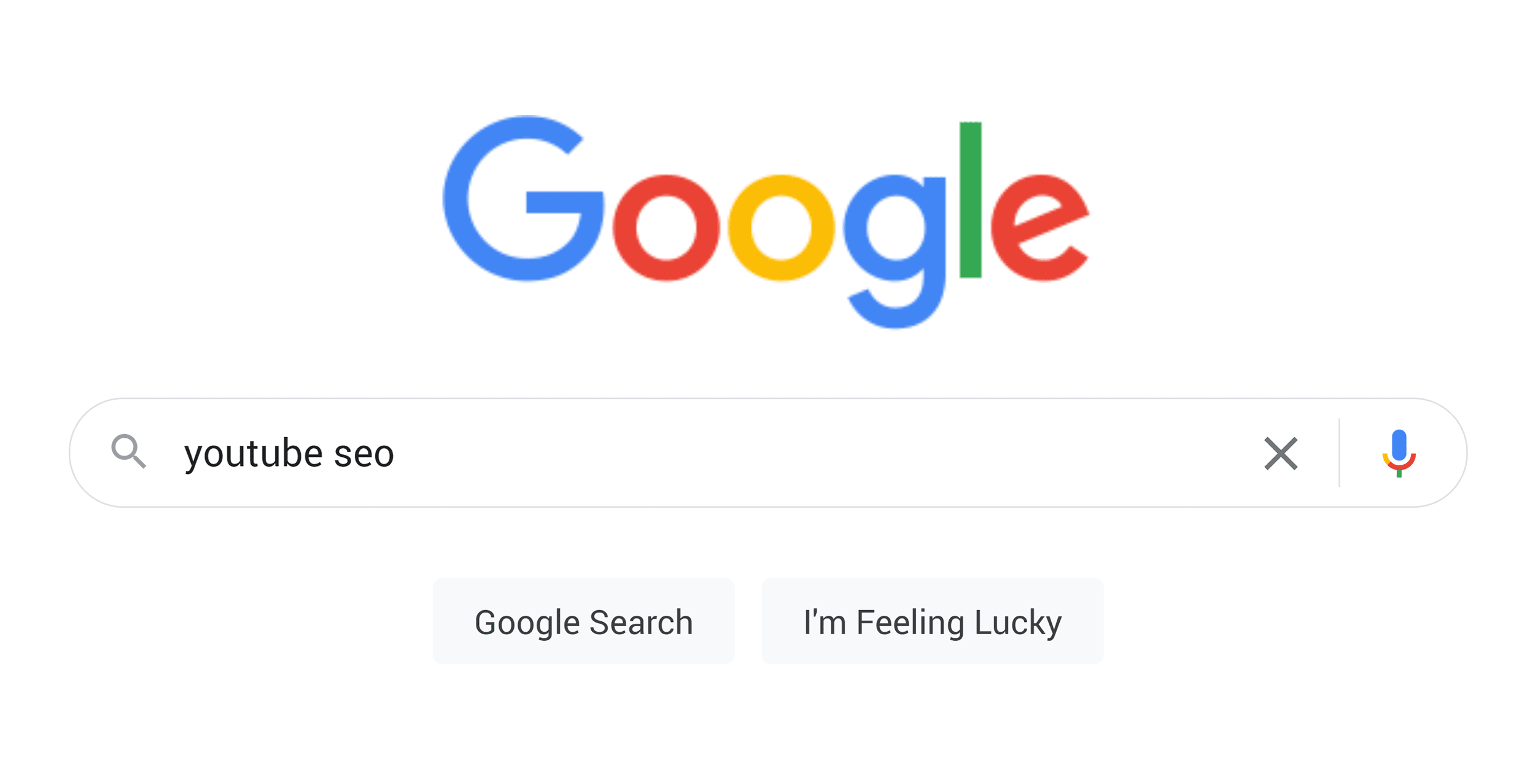
Sure, there are videos in the search results. But they rank near the middle of the page.
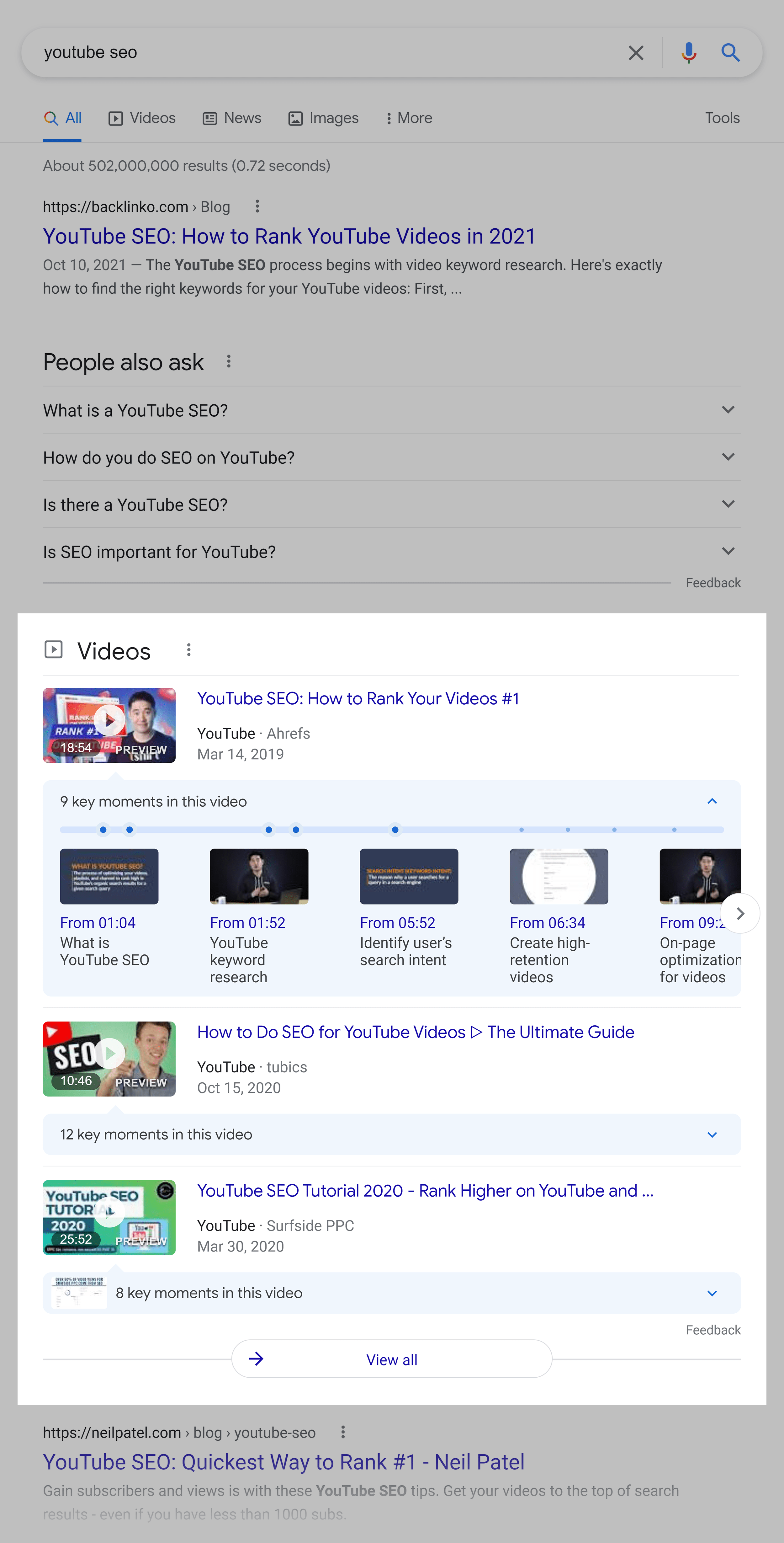
Look what happens when you search for the same thing using the natural language keyword: “how to rank youtube videos”
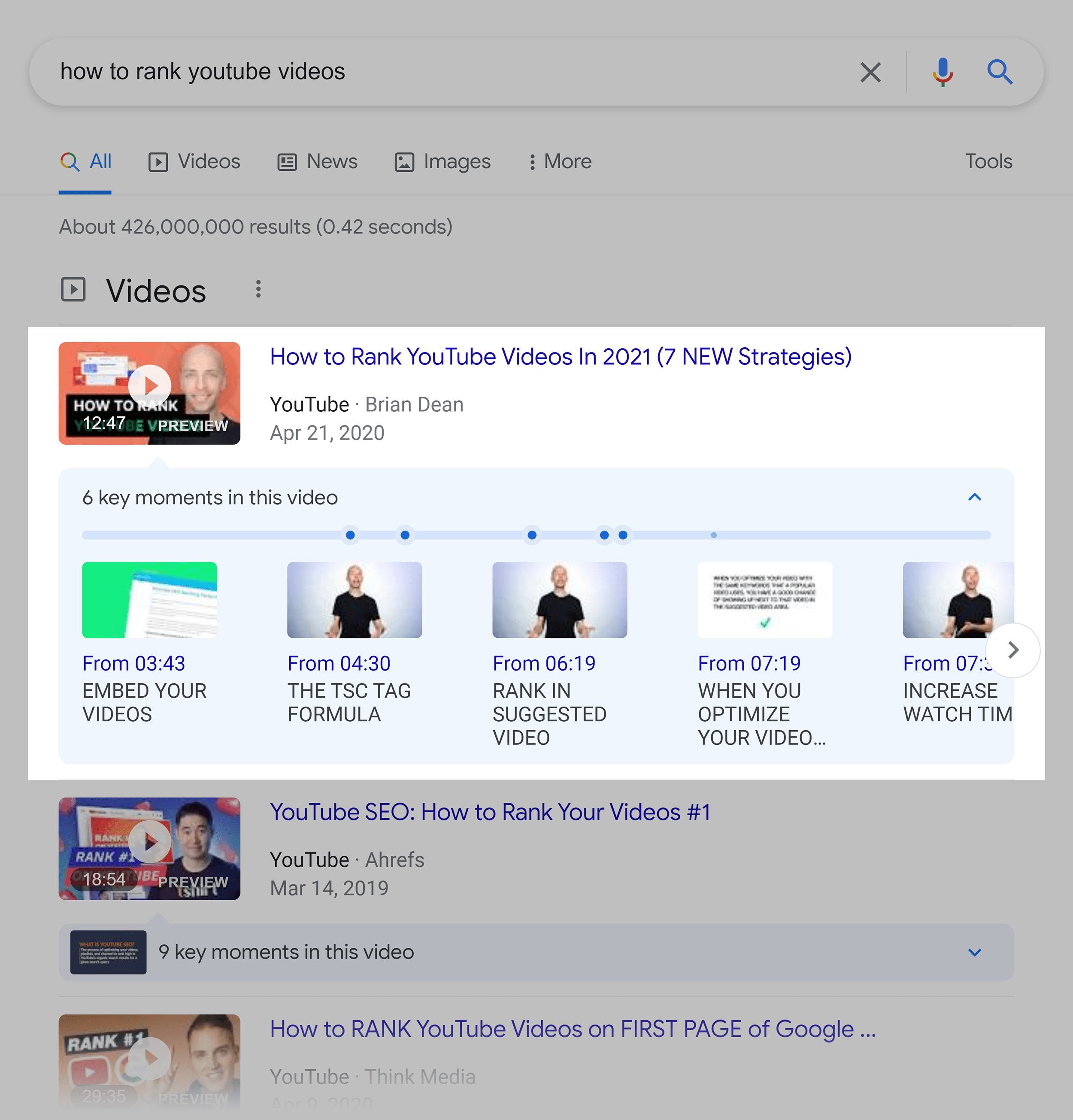
You get a video result.
The takeaway is this:
Video is a BIG part of Google’s strategy for answering voice search queries.
So if you want to get your content in front of voice searchers, you need to rank your videos in Google.

In this chapter, you’re going to see real-life examples of voice search results.
I’ll also break each page down so you can see why it’s ranking so well.
That way, you can apply these strategies to your site.
A while ago I launched The YouTube Marketing Hub.
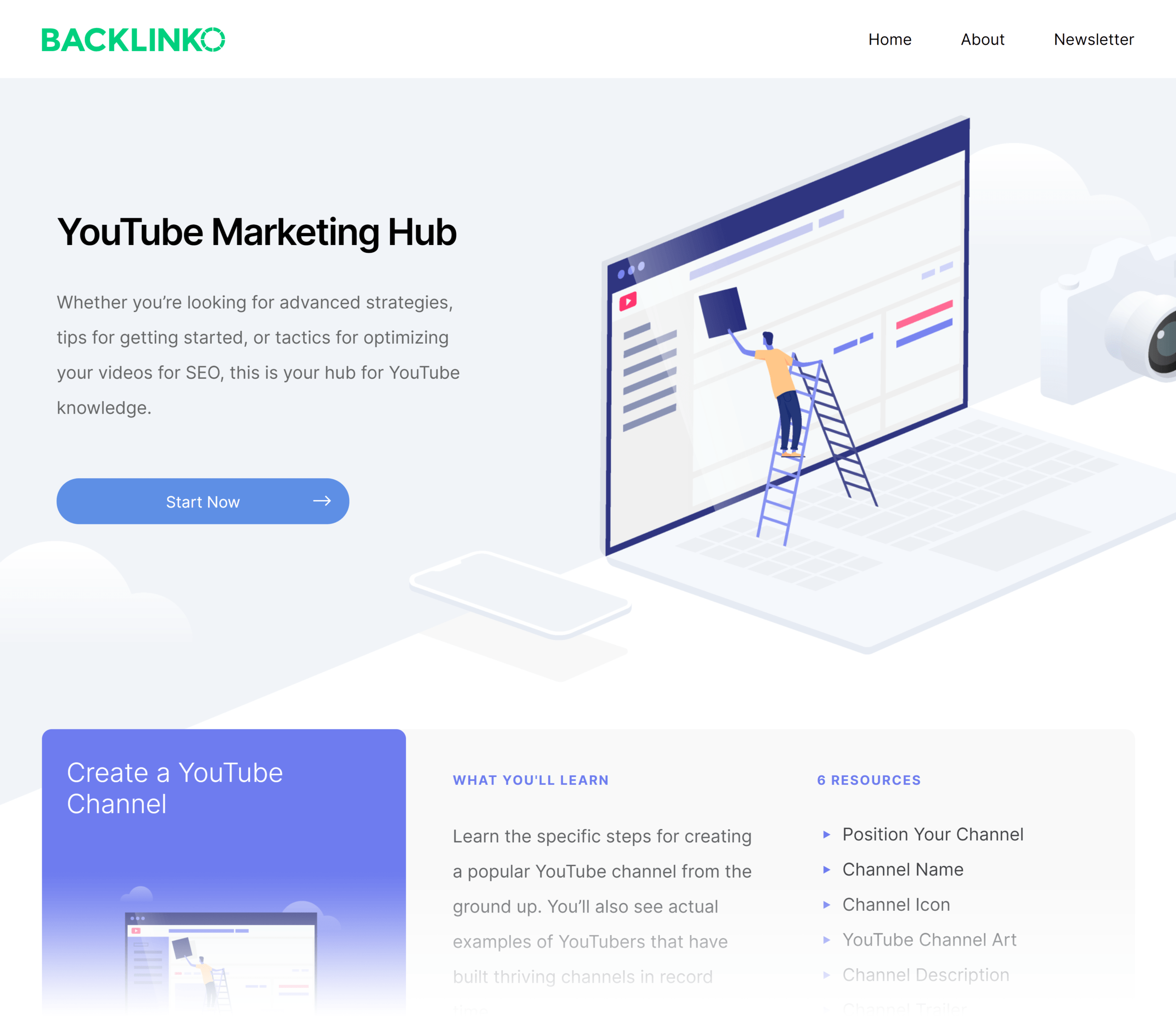
And when I wrote the content for the hub, I made sure to optimize it for voice search.
Specifically, I included a mini-FAQ section at the top of almost every page:
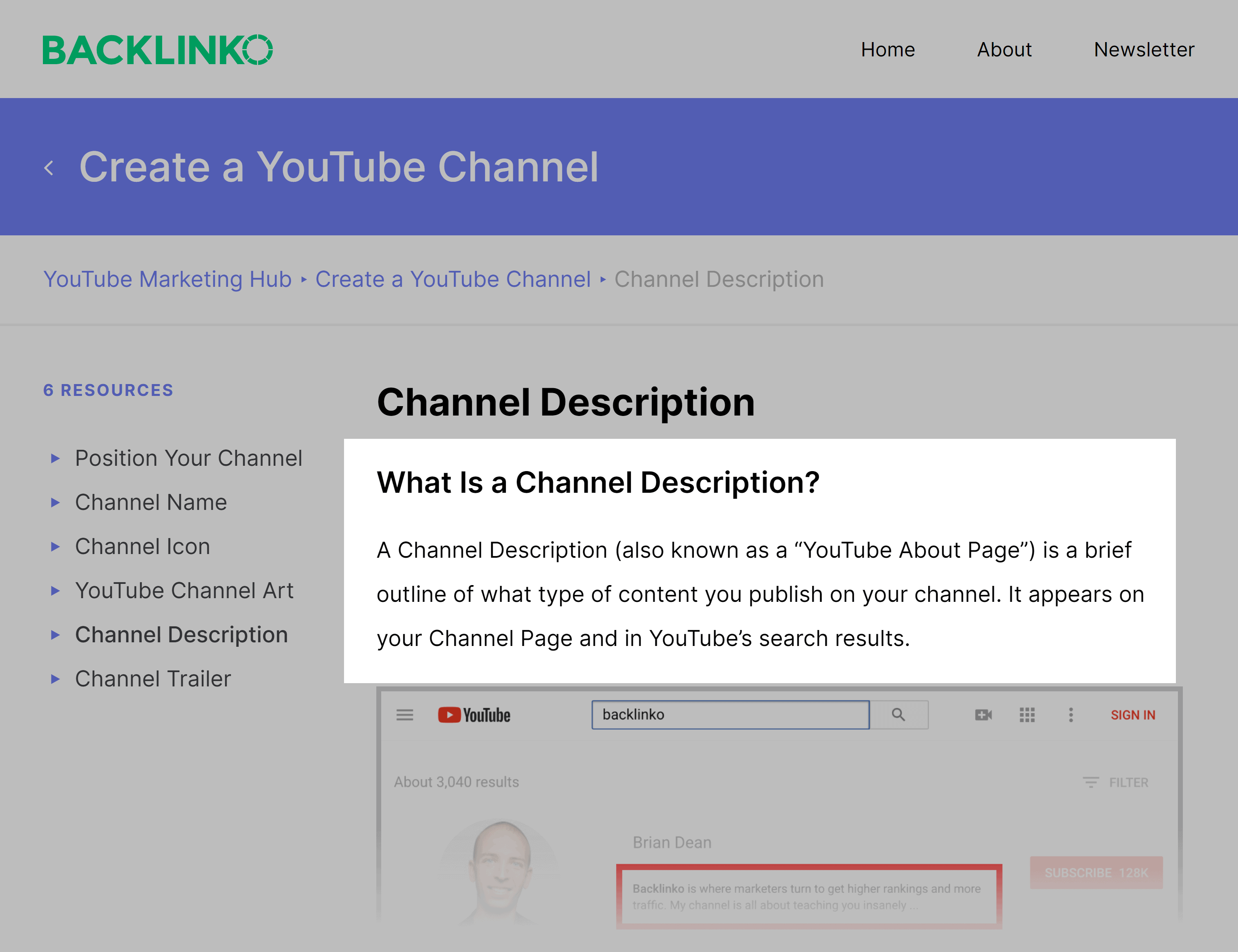
And it worked!
When you do a voice search for “What is a YouTube channel description?”, you get this answer from Google:
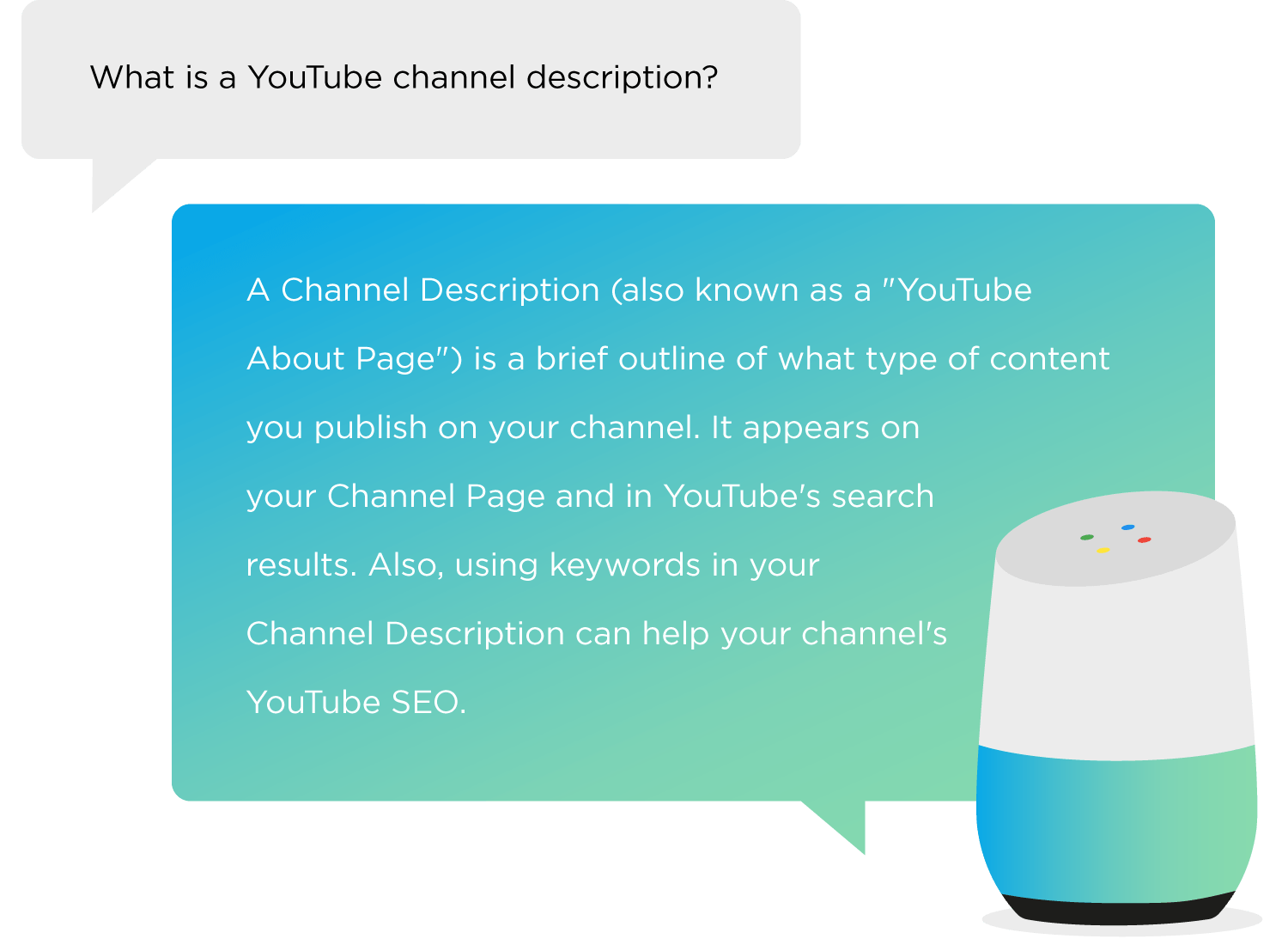
Let’s break down some of the factors that went into this result:
First, the answer was part of a mini-FAQ section. As I showed you earlier, Google loves pulling voice search answers from FAQ pages.
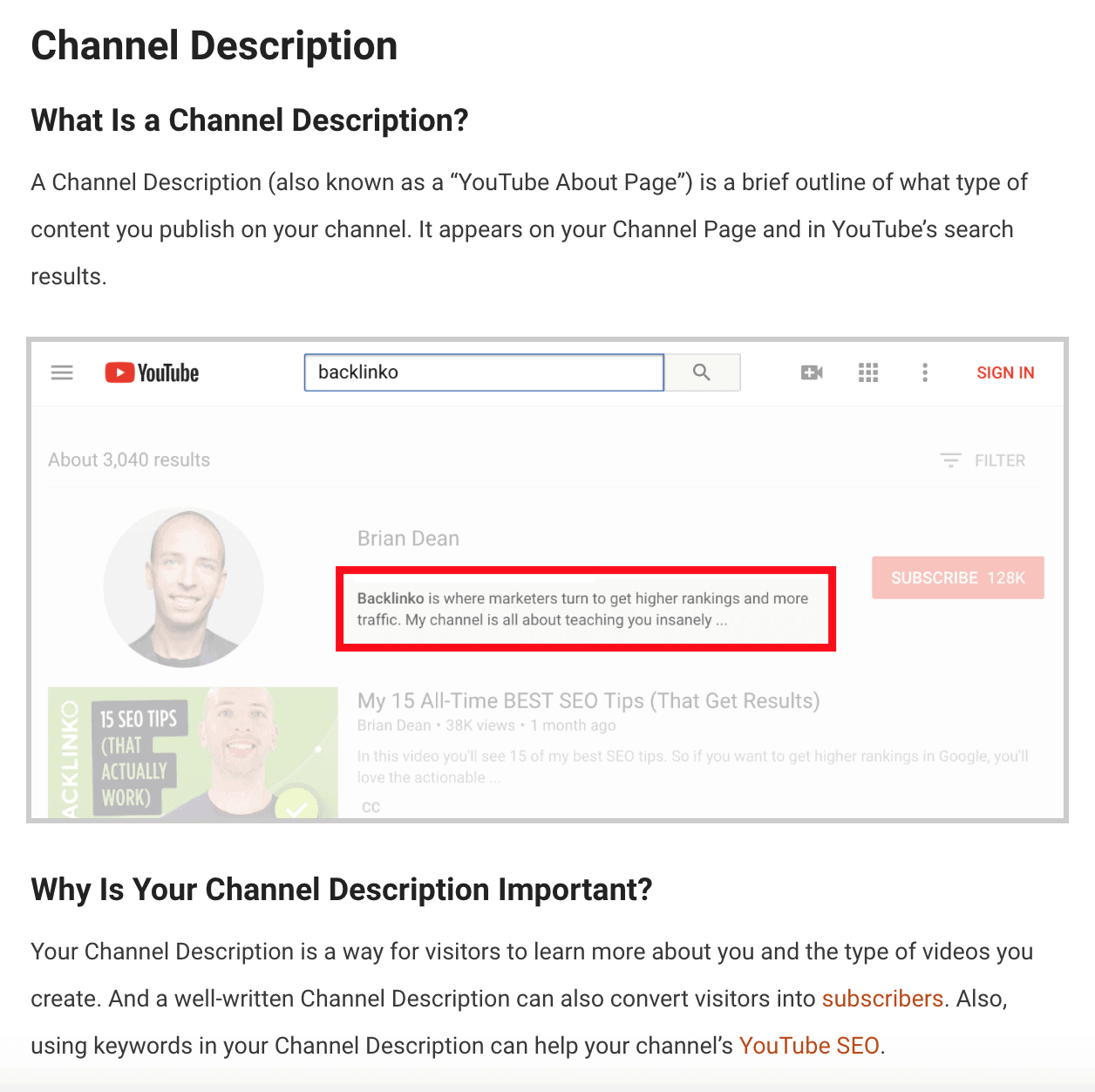
Next, the result shows up in the Featured Snippet spot:
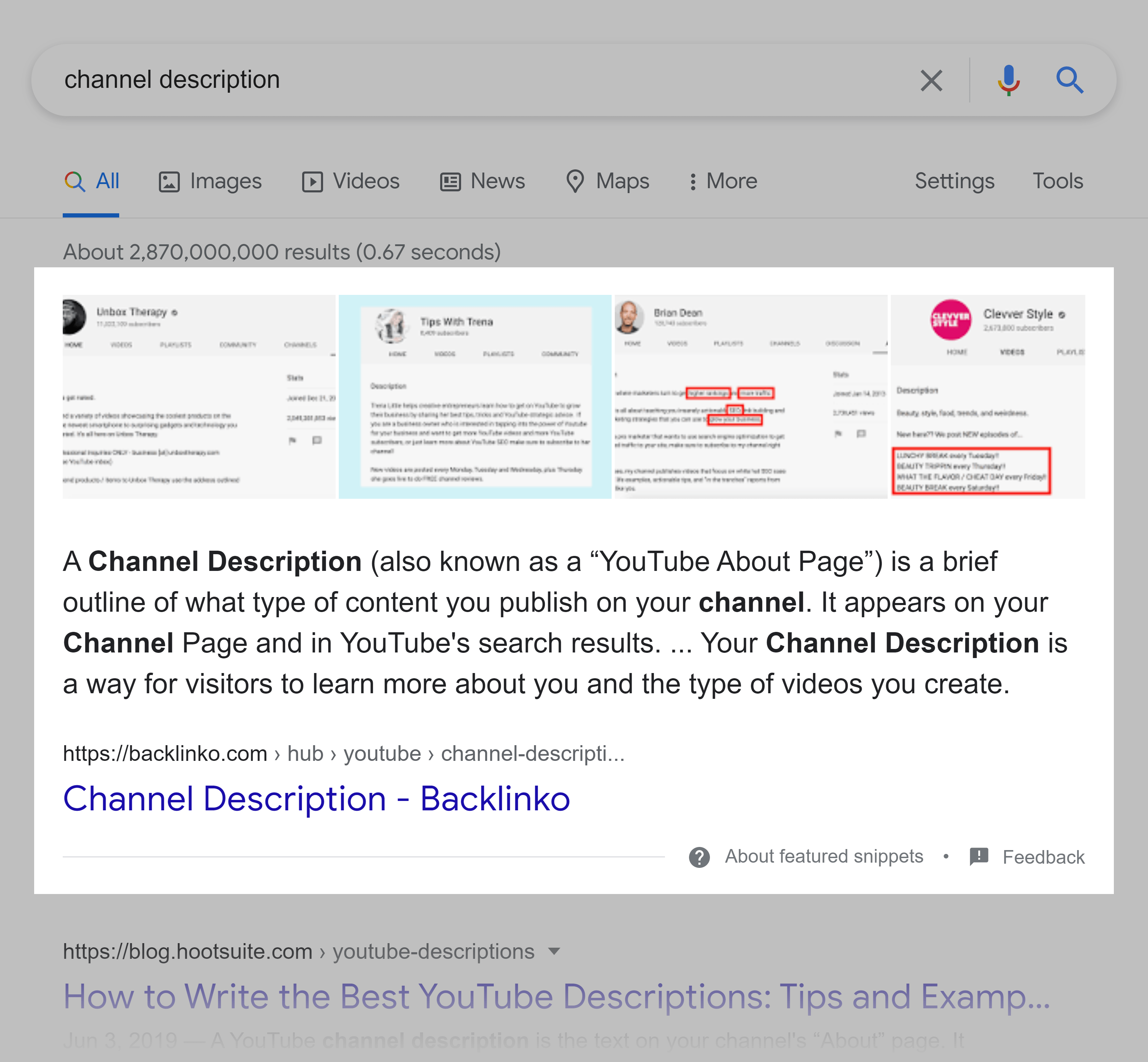
Third, the reading level of my answer is 9th grade, which is in line with most other voice search results.
Finally, Backlinko’s Domain Rating is 85. That’s higher than the voice search average of 77.

Again, the authority of the page doesn’t seem to be super important for voice search SEO.
(That page’s authority is only 12.)

Let’s look at another example…
The answer to this one comes from Lifehacker:

This is one of the cases where Google still gives you 10 blue links.
But unlike a traditional set of search results, Google points you to a specific result by saying: “Here’s information from Lifehacker:”
So what helped this page rank for this voice search keyword?
First off, Lifehacker is a super authoritative site (Domain Rating of 91).
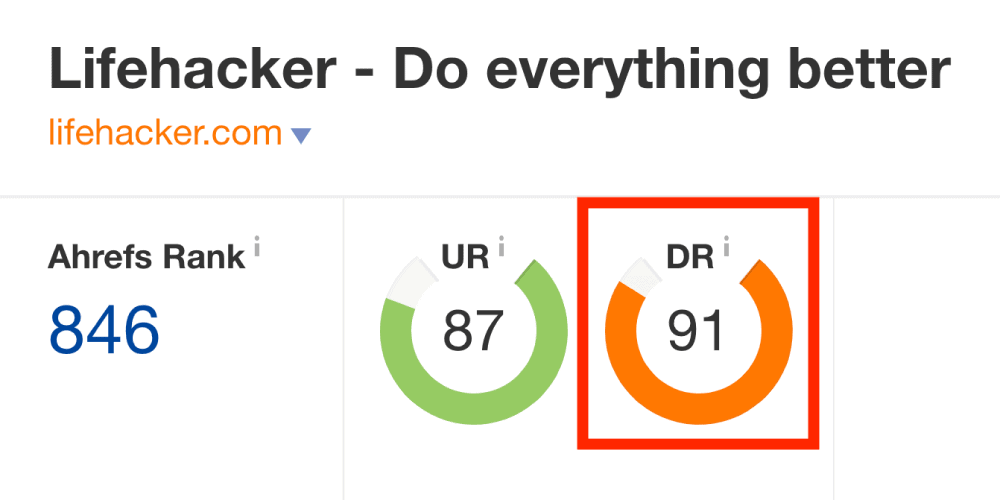
The page also loads lightning fast (it has a 97/100 mobile speed score from Google PageSpeed Insights).
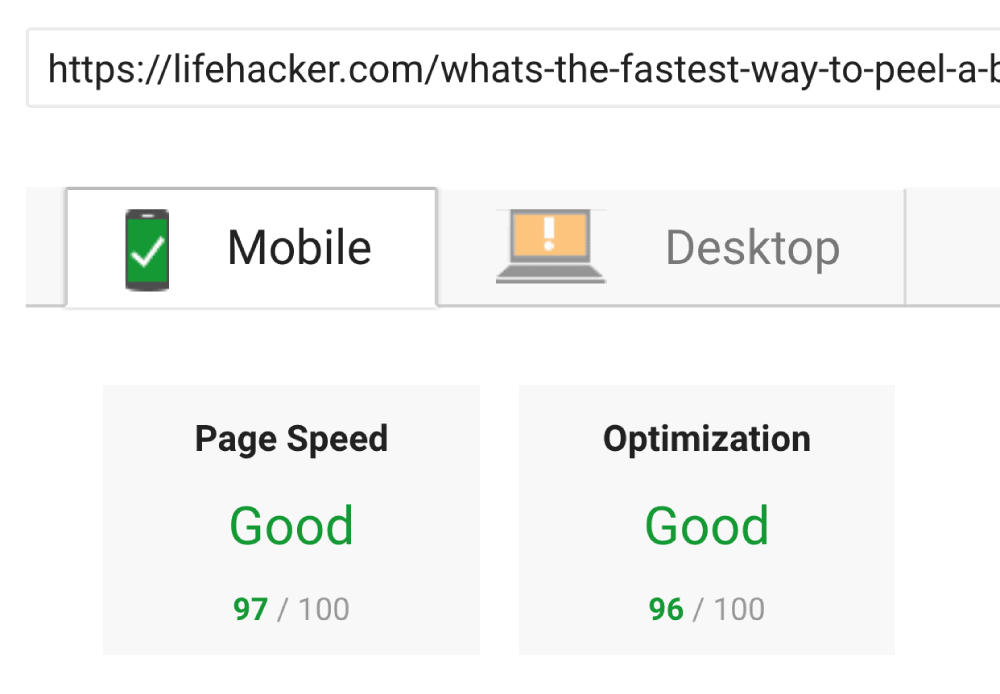
The answer is also written in a way that’s easy to understand (it’s written at a 7th-grade reading level).
Last up, the answer is in the Featured Snippet spot, which increases the odds of ranking in voice search:
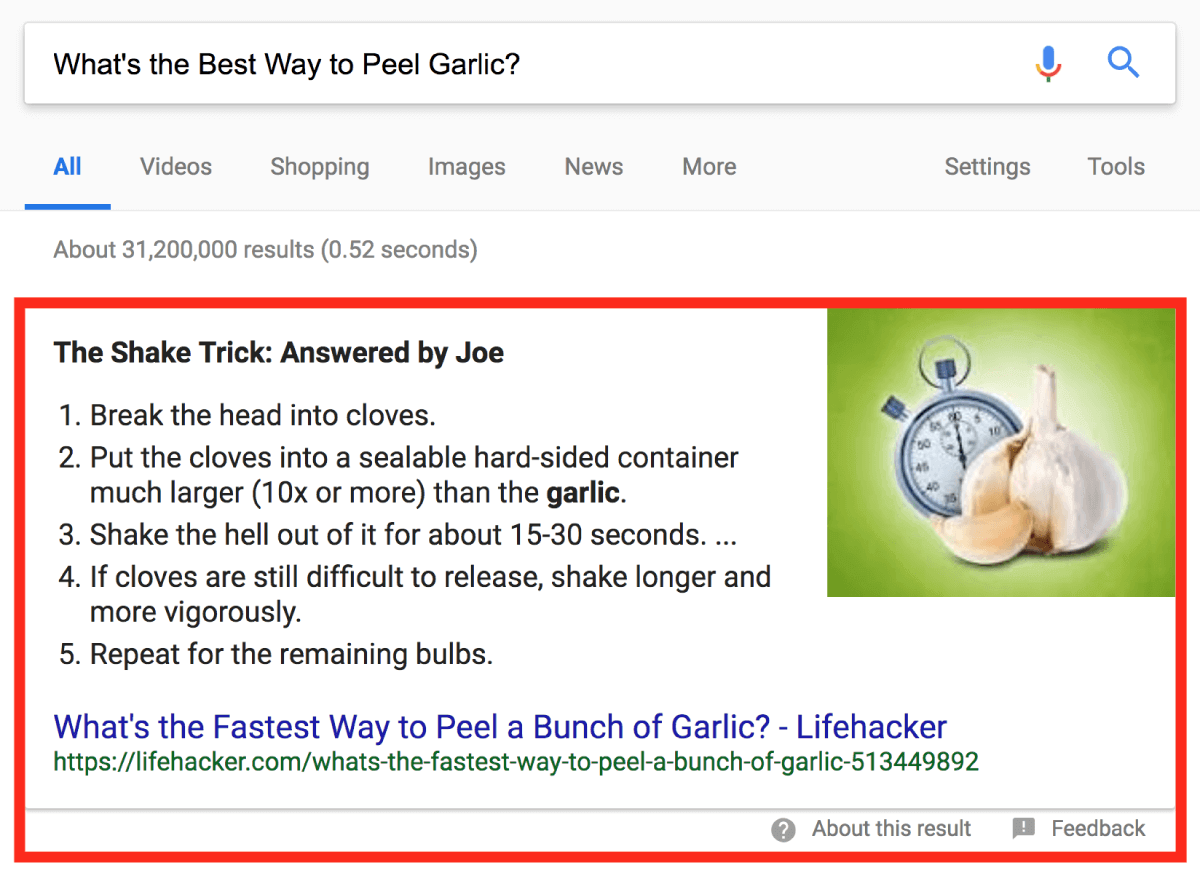
Let’s wrap things up with one final mini case study…
A while ago I updated my guide to getting the most out of The Google Keyword Planner.
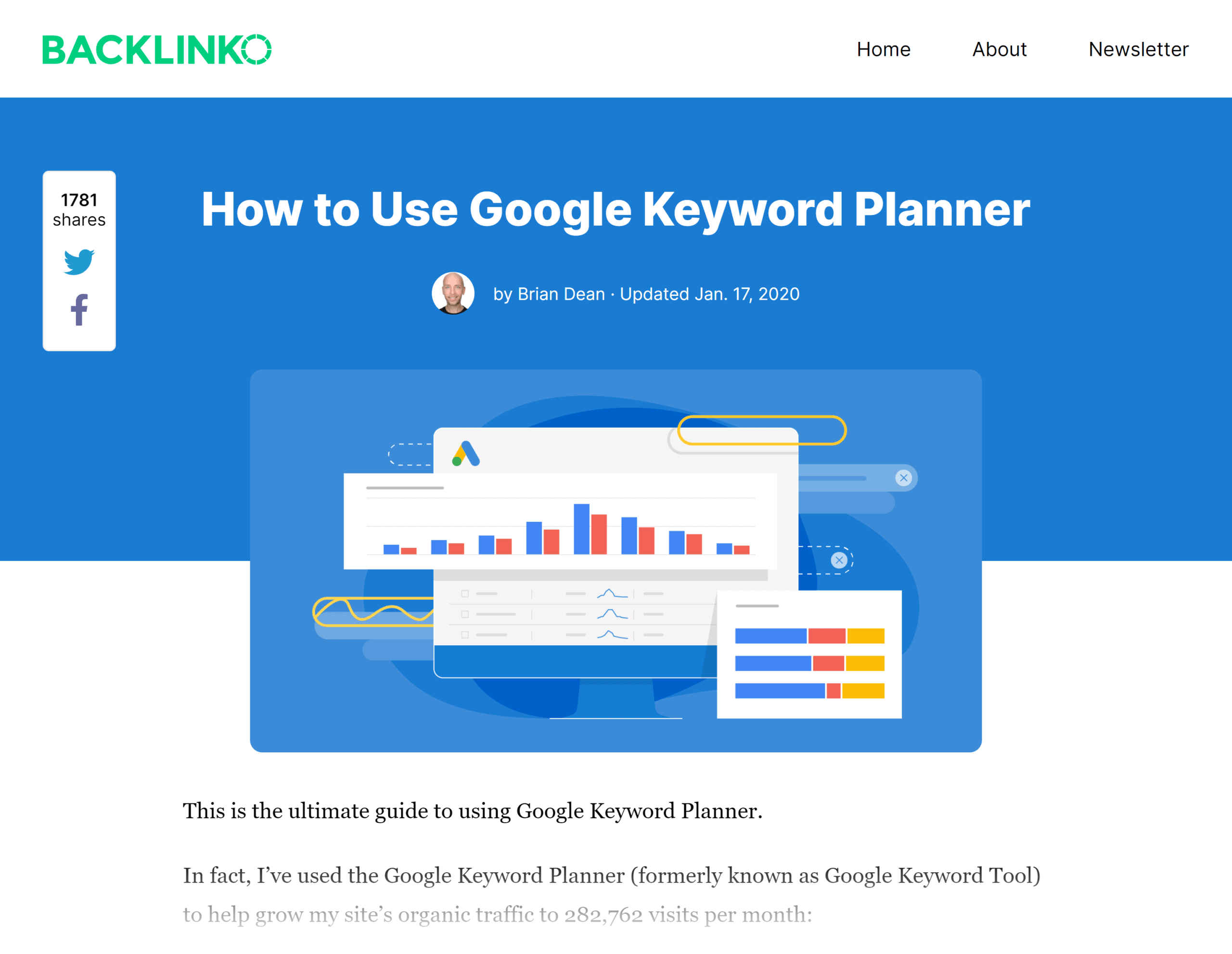
Specifically, I added a bunch of snippets that would work well as a Featured Snippet or as a voice search result.
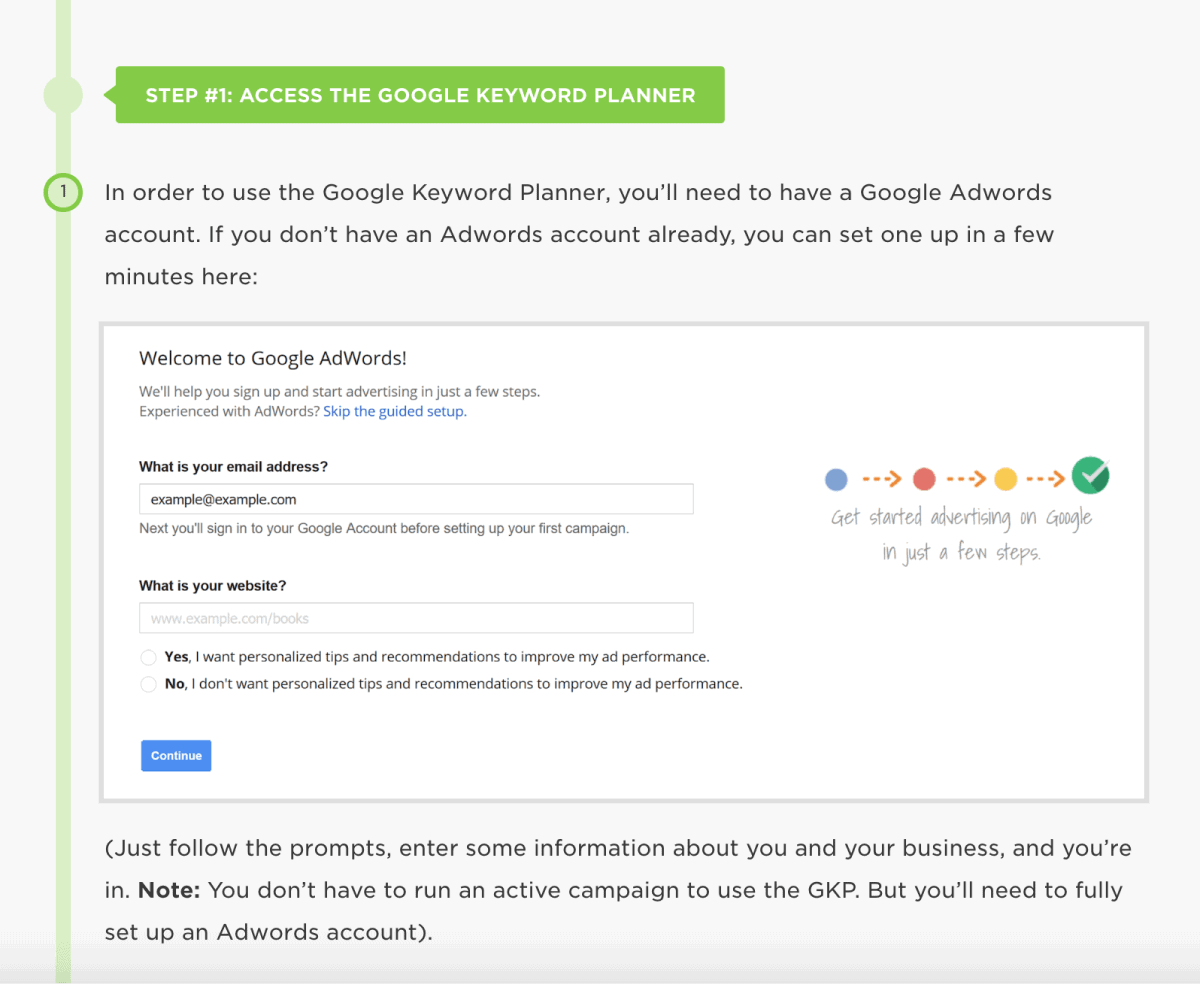
And sure enough, my page “ranks” #1 when you voice search for: “How do you access the Google Keyword Planner”.
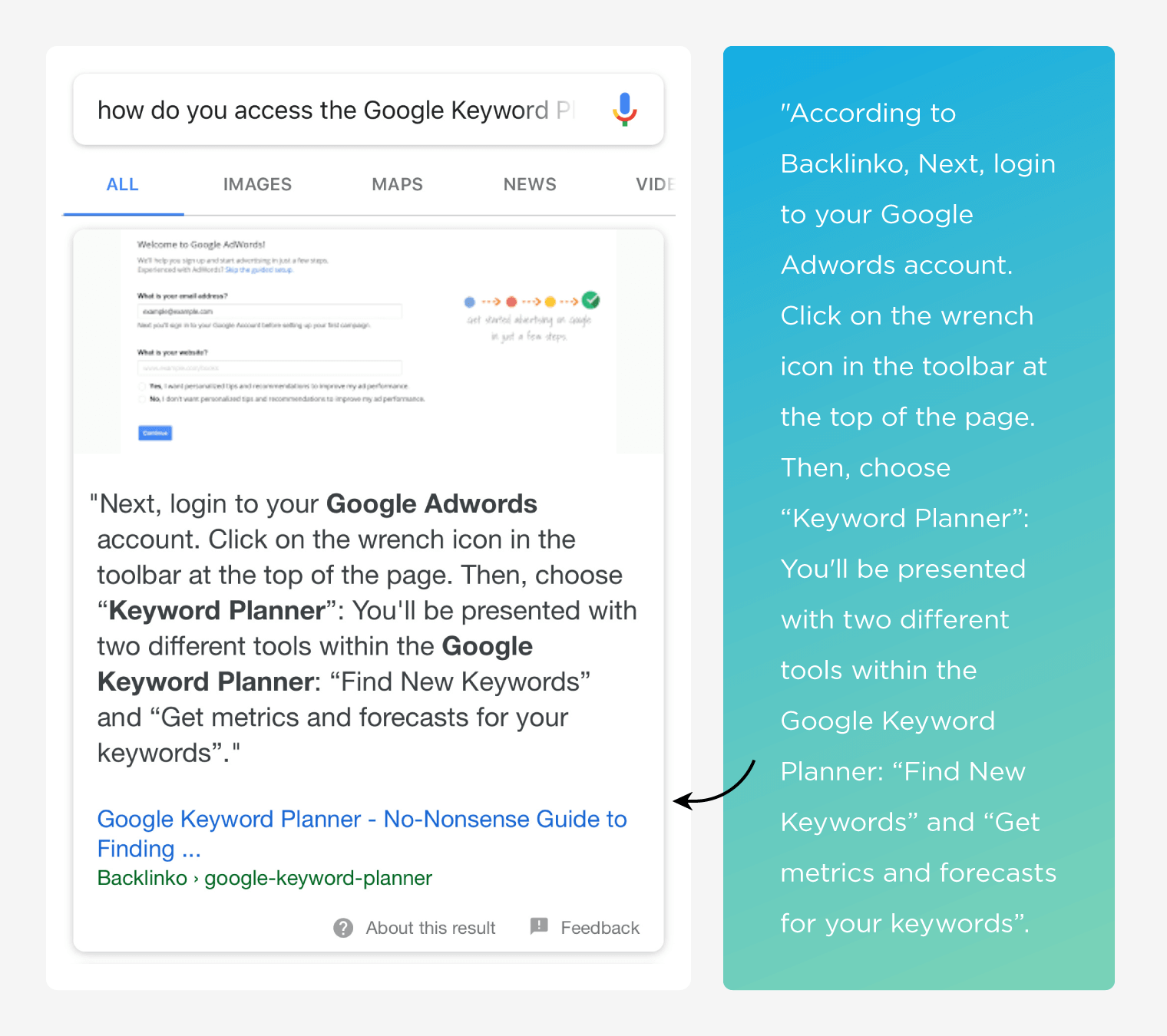
Let’s break it down:
First, Backlinko’s Domain Rating is 85. That definitely helps.
But links aren’t nearly as important as formatting and language.
(After all, 3 of the other 10 results on the first page are from Google.com.)
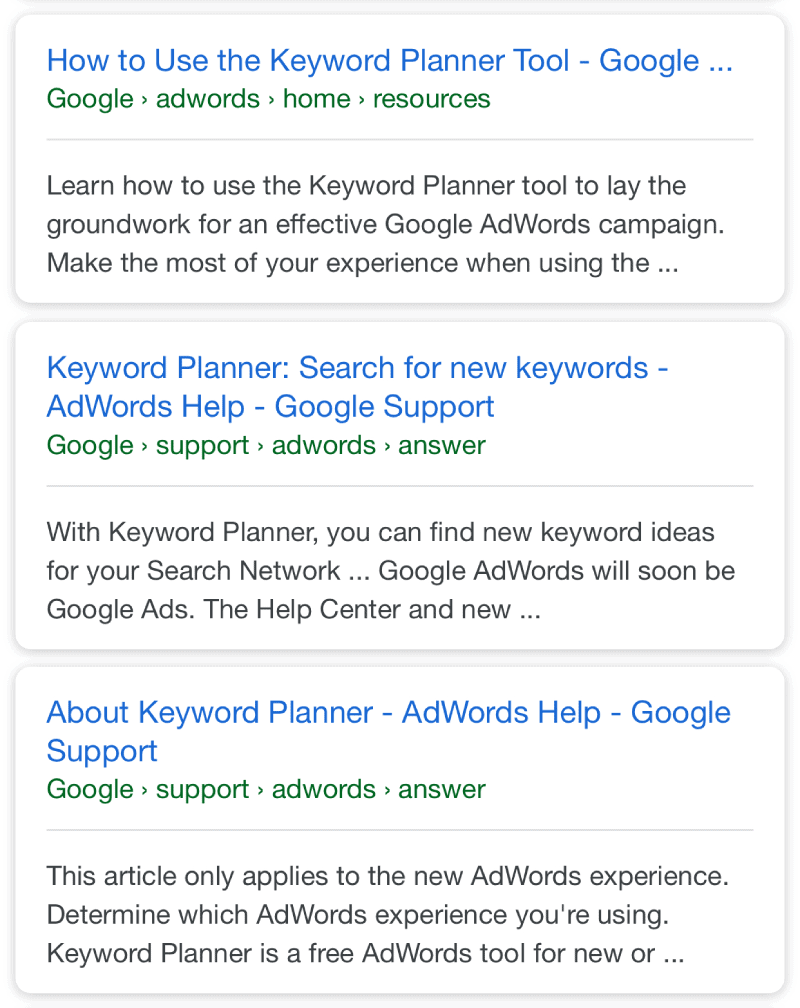
Second, even though the guide was on a technical subject, I made it easy to understand:
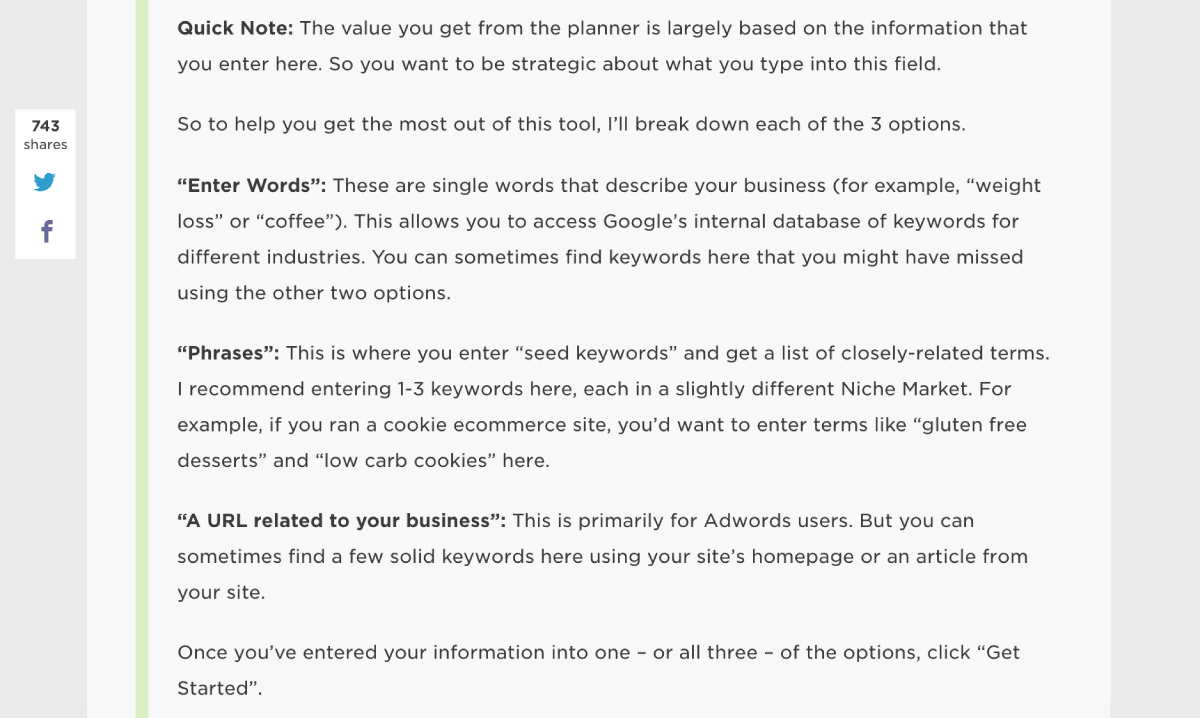
(It’s exactly how I’d explain the Google Keyword Planner to my non-tech savvy mom.)
In fact, my page is written at an 8th-grade reading level.
Finally, the word count of my page is 2,497 words.
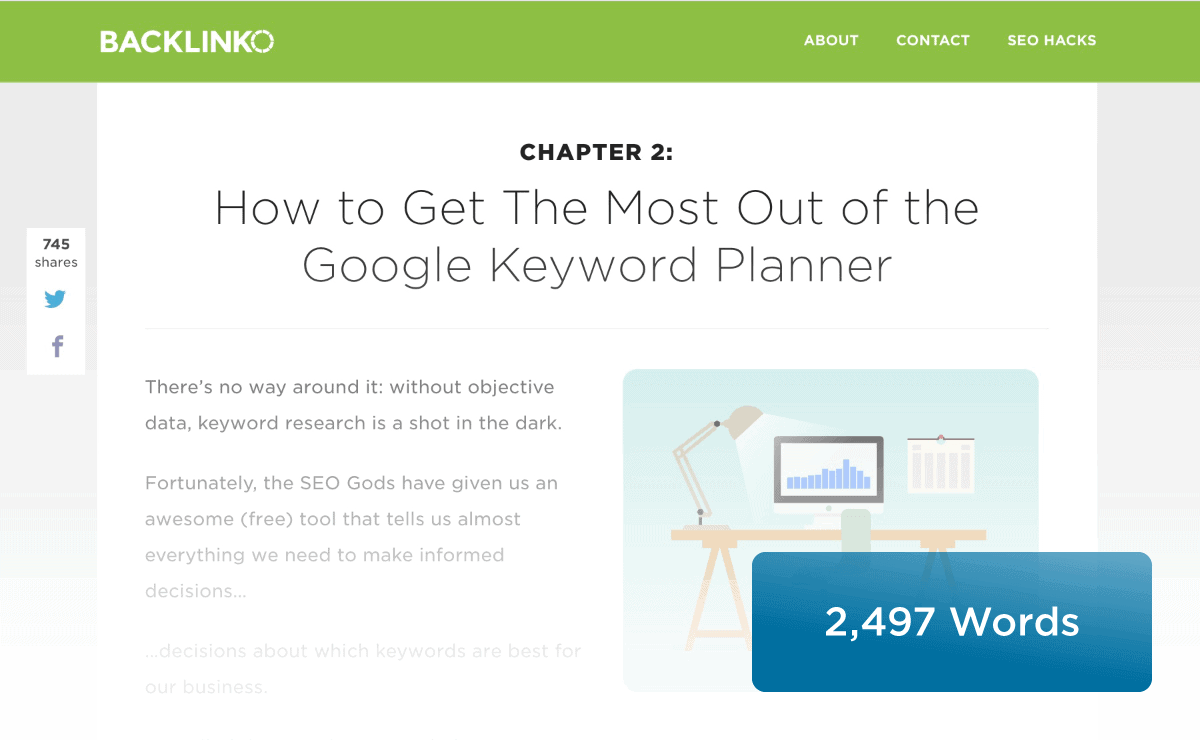
The average voice search result is approximately 2,300 words. So my content is pretty close to the “ideal” length for voice search SEO.

Now I’d like to hear from you:
Which technique from today’s guide are you going to try first?
Are you going to target more Question Keywords?
Or maybe you’re ready to start publishing FAQ pages.
Either way, leave a comment below right now.